
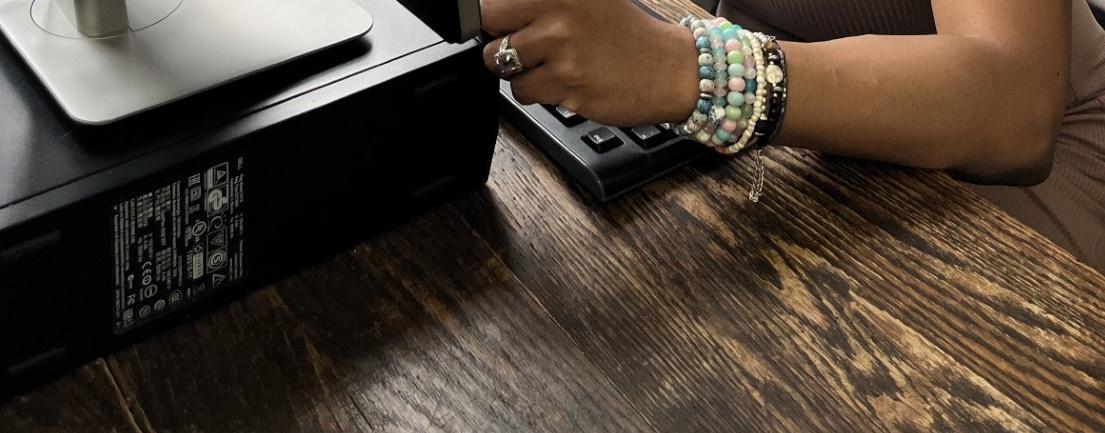

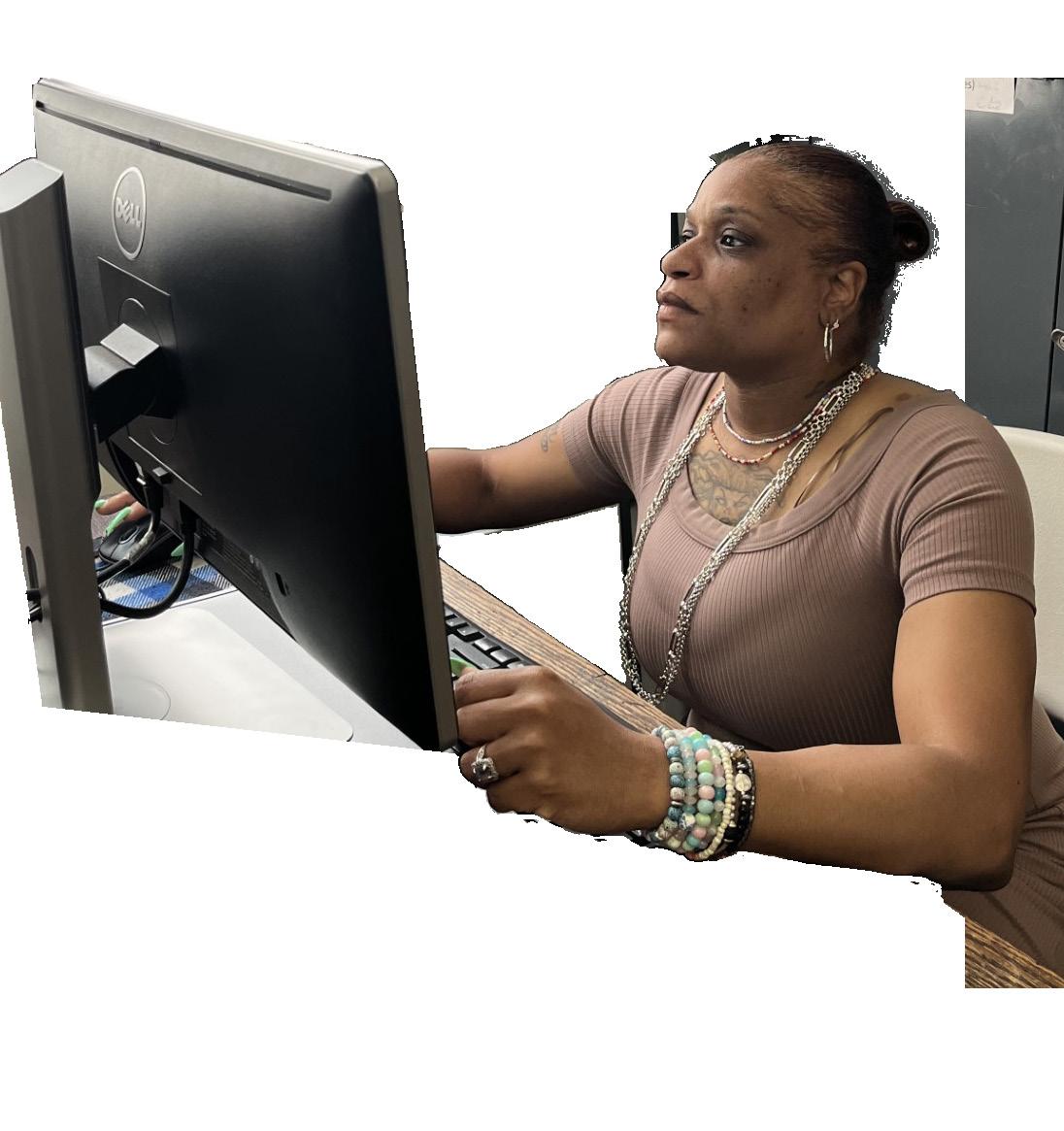
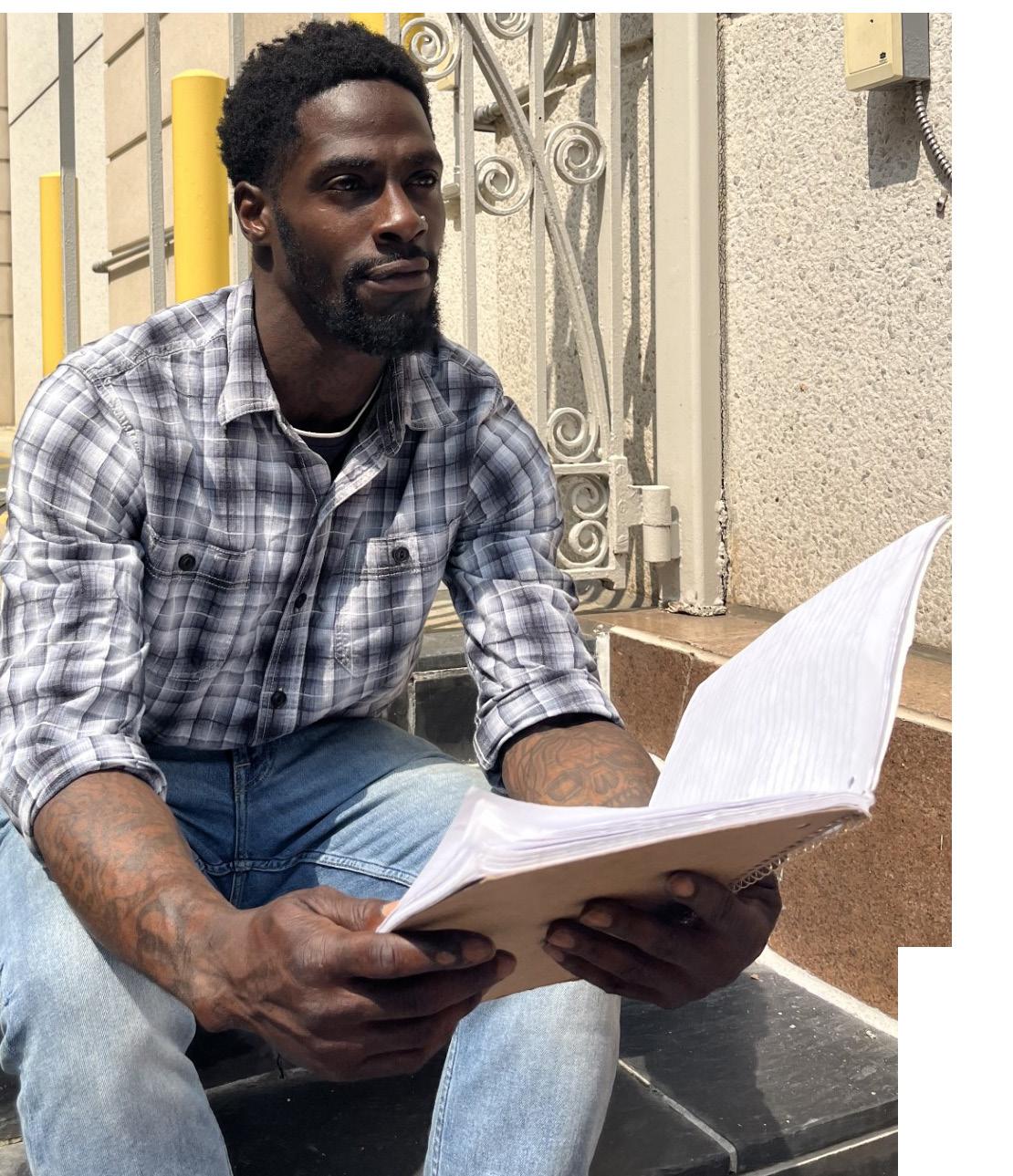
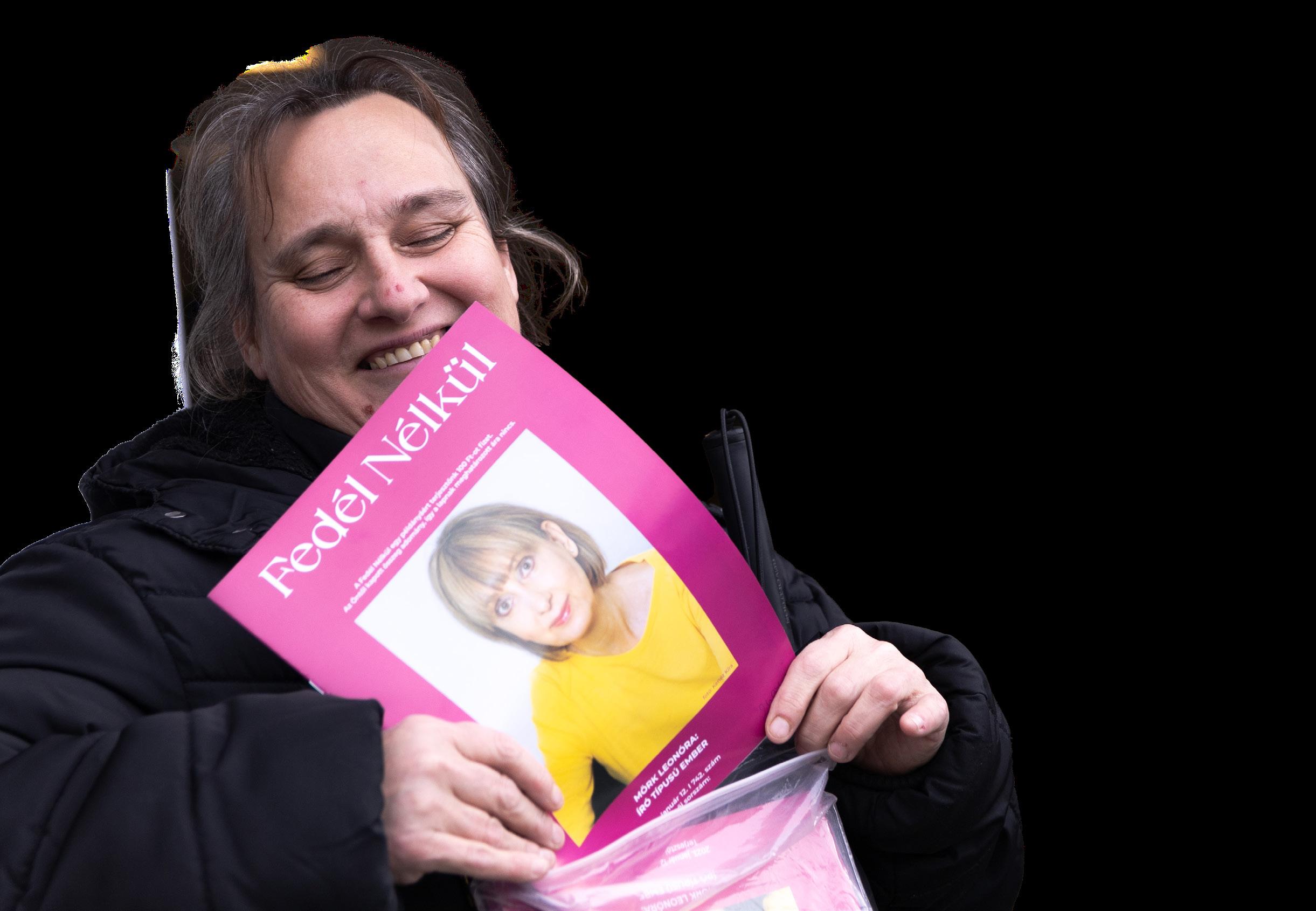
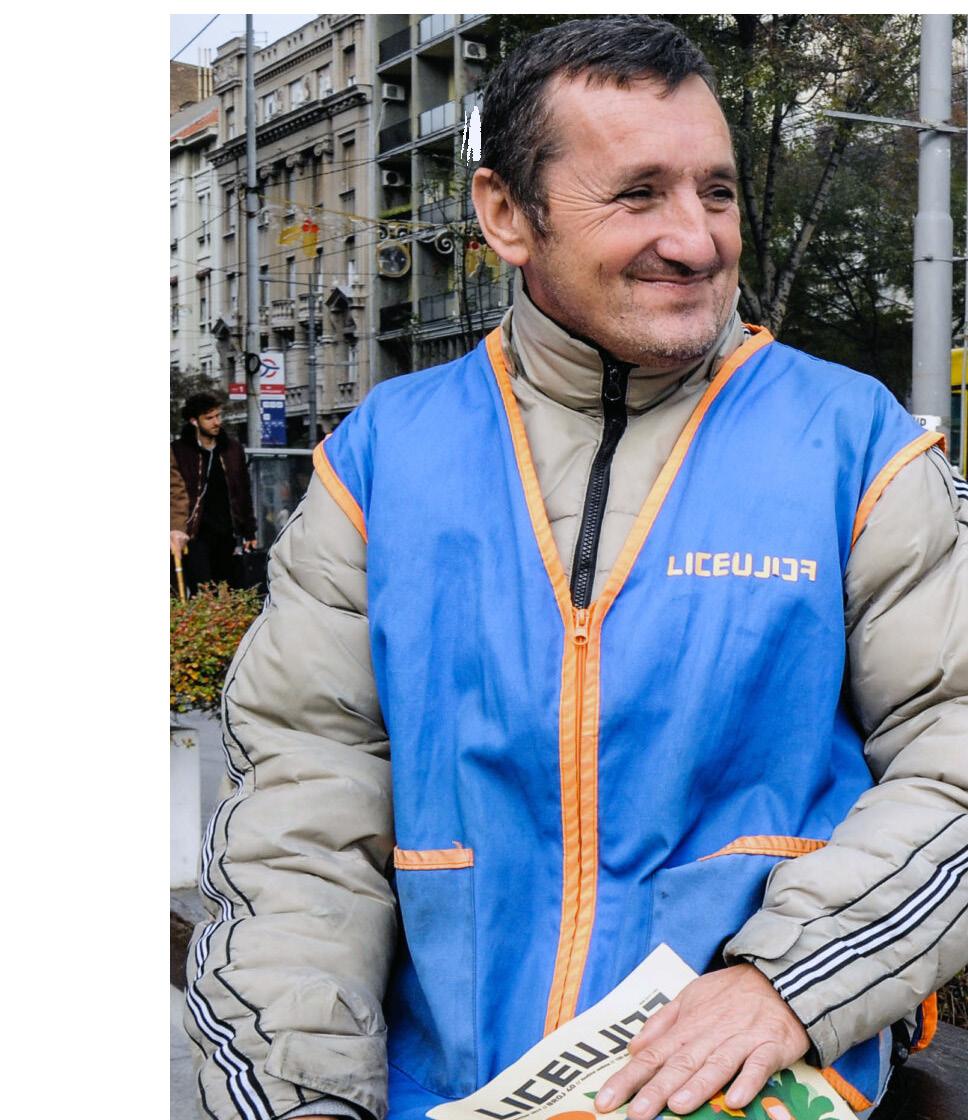

Real People Real Change STREETSENSEMEDIA.ORG @ STREETSENSEDC suggested contribution goes directly to your vendor $2 VOL. 20, ISSUE 27 MAY 31 - JUNE 6, 2023 Vendor profiles from around the world 6 Scan QR Code to download the app and pay your vendor!
How It Works
Each vendor functions as an independent contractor for Street Sense Media, managing their own business to earn an income and increase stability in their life.
VENDOR CODE OF CONDUCT
As self-employed contractors, our vendors follow a code of conduct.

1. I will support Street Sense Media’s mission statement and in so doing will work to support the Street Sense Media community and uphold its values of honesty, respect, support, and opportunity.
2. I will treat all others, including customers, staff, volunteers, and fellow vendors, respectfully at all times. I will refrain from threatening others, pressuring customers into making donations, or engaging in behavior that condones racism, sexism, classism, or other prejudices.
3. I understand that I am not an employee of Street Sense Media but an independent contractor.
4. While distributing the Street Sense newspaper, I will not ask for more than $2 per issue or solicit donations by any other means.
5. I will only purchase the newspaper from Street Sense Media staff and volunteers and will not distribute newspapers to other vendors.
INTERESTED IN BEING A VENDOR?
The
PHOTOS BY ANNEMARIE CUCCIA, SZOFI MIHÁLYI AND SARA RISTIĆ
COVER DESIGNED
BY ATHIYAH AZEEM
1317 G Street NW, Washington, DC 20005 (202) 347 - 2006 streetsensemedia.org
info@streetsensemedia.org
VENDORS
Abel Putu, Aida Peery, Akindele Akerejah, Amia Walker, Amina Washington, Andre Brinson, Andrew Anderson, Angie Whitehurst, Anthony Carney, Archie Thomas, August Mallory, Beverly Sutton, Brianna Butler, Carlos Carolina, Carlton Johnson, Carol Motley, Charles Armstrong, Chon Gotti, Chris Cole, Chon Gotti, Conrad Cheek, Corey Sanders, Daniel Ball, David Snyder, Debora Brantley, Degnon (Gigi) Dovonou, Don Gardner, Dominique Anthony, Donté Turner, Doris Robinson, Earl Parker, Eric Thompson-Bey, Erica Downing, Evelyn Nnam, Floyd Carter, Franklin Sterling, Frederic John, Freedom, Gerald Anderson, Greta Christian, Henrieese Roberts, John Alley, Henry Johnson, Ivory Wilson, Jacqueline “Jackie” Turner, Jacquelyn Portee, James Davis, Jeanette Richardson, Jeff Taylor, Jeffery McNeil, Jeffrey Carter, Jemel Fleming, Jenkins Daltton, Jennifer McLaughlin, Jermale McKnight, Jet Flegette, Jewel Lewis, John Alley, John Littlejohn, Josie Brown, Juliene Kengnie, Katrina Anige, Kenneth Middleton, Khadijah Chapman, Kym Parker, L. Morrow, Laura Smith, Lawrence Autry, Levester Green, Mango Redbook, Marcus McCall, Mark Jones, Marc Grier, Mars, Martin Walker, Mary Sellman, Maurice Spears, Melody Byrd, Michael Craig, Michael Warner, Michele Modica, Michele Rochon, Morgan Jones, Nikila Smith, Patricia Donaldson, Patty Smith, Phillip Black, Queenie Featherstone, Rashawn Bowser, Reggie Jones, Reginald Black, Reginald C. Denny, Ricardo Meriedy, Richard “Mooney” Hart, Rita Sauls, Robert Warren, Rochelle Walker, Ron Dudley, Ronald Smoot, Sasha Williams, Shuhratjon Ahmadjonov, Susan Westmoreland, Susan Wilshusen, Sybil Taylor, Vennie Hill, Warren Stevens, Wendell Williams, William Mack
BOARD OF DIRECTORS
Mary Coller Albert, Blake Androff, Nana-Sentuo Bonsu, Jonquilyn Hill, Stanley Keeve, Clare Krupin, Ashley McMaster, Matt Perra, Michael Phillips, Daniel Webber, Shari Wilson, Corrine Yu
CHIEF EXECUTIVE OFFICER
Brian Carome
DIRECTOR OF DEVELOPMENT AND COMMUNICATIONS
Doris Warrell
DIRECTOR OF PROGRAMS
6. “I will not distribute copies of “Street Sense” on metro trains and buses or on private property.”
7. I will abide by the Street Sense Media Vendor Territory Policy at all times and will resolve any related disputes with other vendors in a professional manner.
8. I will not sell additional goods or products while distributing “Street Sense.”
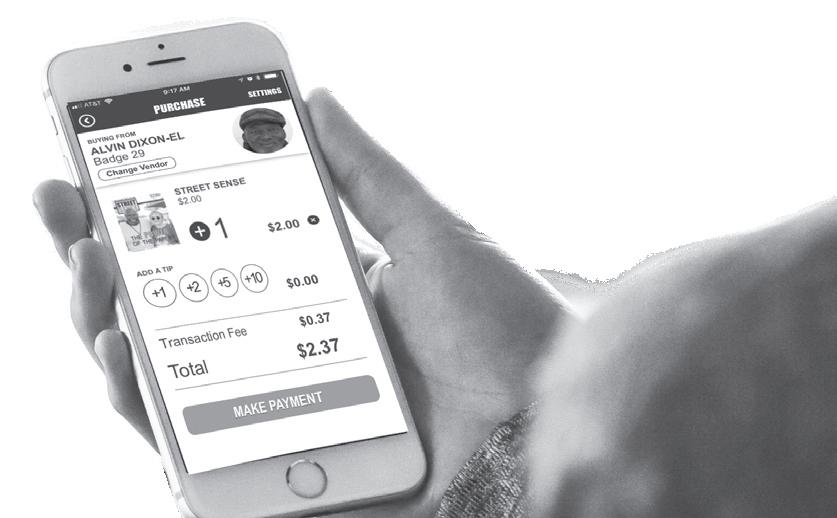
9. I will not distribute “Street Sense” under the influence of drugs or alcohol.
10. I understand that my badge and vest are property of Street Sense Media and will not deface them. I will present my badge when purchasing “Street Sense” and will always display my badge when distributing “Street Sense.”
The Street Sense Media Story, #MoreThanANewspaper
Originally founded as a street newspaper in 2003, Street Sense Media has evolved into a multimedia center using a range of creative platforms to spotlight solutions to homelessness and empower people in need. The men and women who work with us do much more than sell this paper: They use film, photography, theatre, illustration, and more to share their stories with our community.
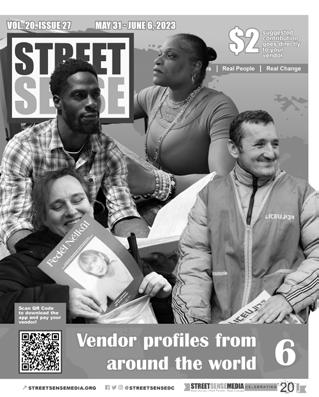
Our media channels elevate voices, our newspaper vendor and digital marketing programs provide economic independence. And our in-house case-management services move people forward along the path toward permanent supportive housing.
At Street Sense Media, we define ourselves through our work, talents, and character, not through our housing situation.
Darick Brown
DIRECTOR OF VENDOR EMPLOYMENT
Thomas Ratliff
VENDOR PROGRAM ASSOCIATES
Aida Peery, Clifford Samuels, Chon Gotti
VENDOR PROGRAM VOLUNTEERS
Roberta Haber, Ann Herzog, Madeleine McCollough, Dylan Onderdonksnow, Amelia Stemple, Tyler Bruno
MANAGER OF ARTISTIC WORKSHOPS
Maria Lares
EDITOR-IN-CHIEF
Will Schick
DEPUTY EDITOR
Kaela Roeder
PRODUCTION EDITOR
Athiyah Azeem
STAFF REPORTER
Annemarie Cuccia
ARTISTS-IN-RESIDENCE
Ariane Mohseni (Film), Bonnie Naradzay (Poetry), David Serota (Illustration), Lalita Clozel (Film), Willie Schatz (Writing), Leslie Jacobson (Theater), Roy Barber (Theater)
ARTS EDITOR (VOLUNTEER)
Austine Model
OPINION EDITOR (VOLUNTEER)
Candace Montague
EDITORIAL VOLUNTEERS
Josh Axelrod, Ryan Bacic, Lilah Burke, Chelsea Ciruzzo, Lenika Cruz, Alison Henry, Kathryn Owens, Andrew Siddons
2 // STREET SENSE MEDIA // MAY 31 - JUNE 6, 2023 © STREET SENSE MEDIA 2003 - 2023
New vendor training: every Tuesday
Thursday // 2 p.m. // 1317 G St., NW
and
NO CASH? NO PROBLEM.
YOUR SUGGESTED $2.00 DONATION
per newspaper copy $.50 Vendors pay Pay vendors with the Street Sense Media app! S earch “S treet S en S e ” in your app S tore . AVAILABLE
Street Sense Media publishes the newspaper BUSINESS MODEL
goes directly to your vendor, empowering them to overcome homelessness and poverty
Cover
DC Council passes 2024 budget
ANNEMARIE CUCCIA Staff Reporter
The D.C. Council passed the city’s fiscal year 2024 budget on May 30. The budget, which now heads to the mayor and Congress for approval, reverses many of the cuts to social services Mayor Muriel Bowser proposed in March.
In a new measure, any surplus revenue the District has at the end of this year will be spent on food benefits and relief for excluded workers, though such a surplus is unlikely. Finally, the council voted to add an additional $33 million in newly available federal funding to the Emergency Rental Assistance Program (ERAP) for this year, but it’s not yet clear when applications will reopen.
Two weeks ago, the council voted on the 2024 budget for the first time, restoring money for ERAP, legal services for people facing eviction, survivors of domestic violence and homeless services. The council also added money for 230 new Permanent Supportive Housing (PSH) vouchers — Bowser had not funded any.
But advocates and some councilmembers pushed for more funding for some programs, including food access and PSH
vouchers. The Way Home Campaign, a group of organizations that advocate for ending homelessness, supports an additional 1,500 vouchers.
At the May 30 meeting, Ward 4 Councilmember Janeese Lewis George introduced an amendment that would require any additional money D.C. has at the end of 2023 to be distributed to people who are on the Supplemental Nutrition Assistance Program (SNAP) and people who did not receive unemployment benefits during the Covid-19 emergency.
The amendment calls for the first $39 million of unexpected funds to be used to fund the Give SNAP a Raise Act, which would provide a local SNAP benefit to supplement federal benefits. People who are already on SNAP would receive the extra benefit from Jan. 2024 through Sept. 2024, which increases the household’s monthly benefit by up to 10%.
District residents who are on SNAP currently receive about $6 a day, on average, and may still be adjusting from a decrease in SNAP benefits paired with the end of the pandemic.
“We have neighbors whose monthly SNAP benefits are now reduced to double and single digits,” Lewis George said. “We can make the difference for these residents.”
SSM FAMILY UPDATES
• Street Sense Media is going to the Washington Nationals on Friday, June 16, at 7 p.m. See Thomas if you want to go!

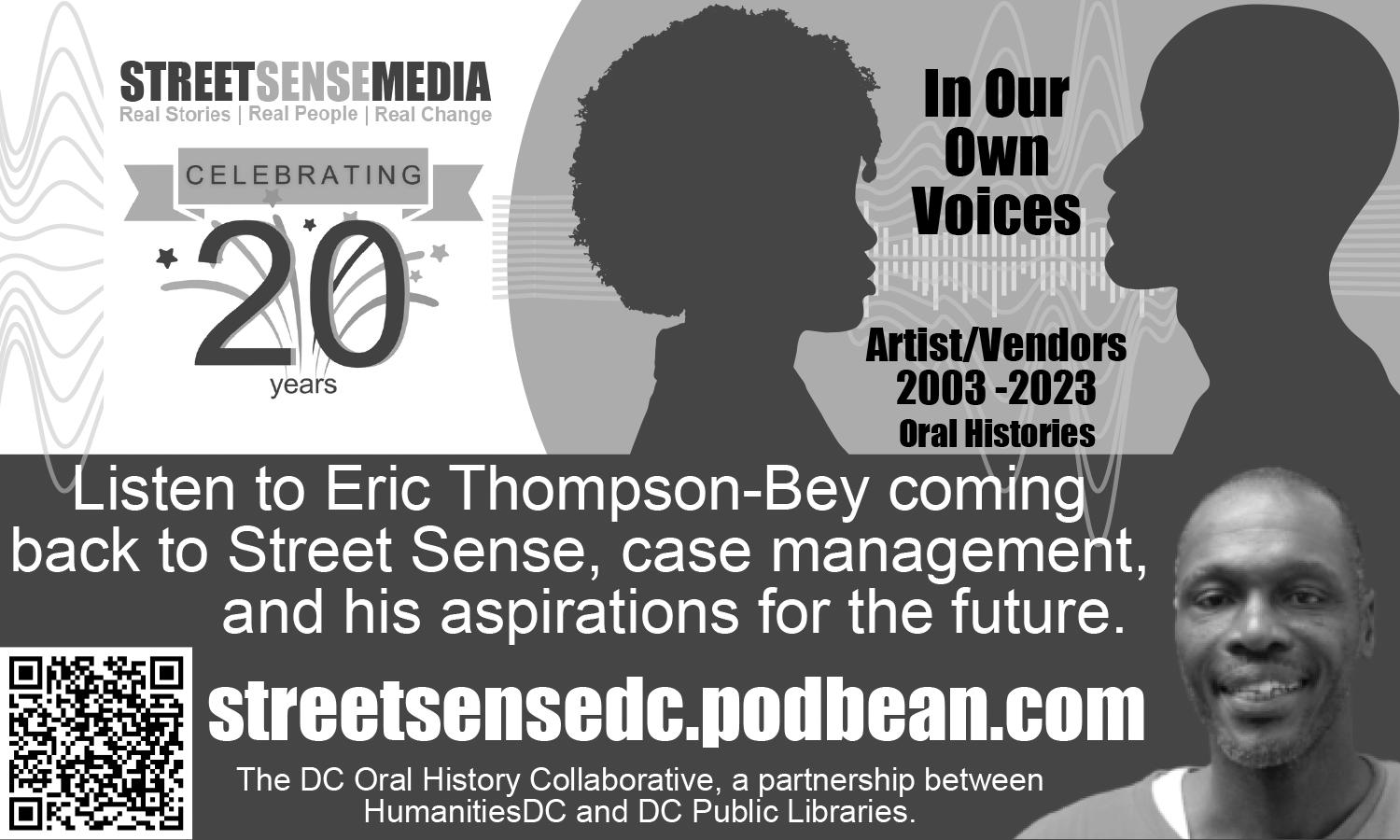
• Receive extra newspapers for referring someone you know to new vendor orientation. Every Tuesday and Thursday at 2 p.m.
• Vendors continue to receive free papers for proof of vaccination.
The next $20 million would be distributed to people who were excluded from receiving local and federal pandemic assistance. D.C. initially approved a benefit for excluded workers last year, but the money was never distributed, and the mayor’s proposed budget for 2024 cut funding for the measure. Last year, the council estimated the money could provide a $1,000 check to about 15,000 excluded workers. Dozens of excluded workers testified throughout the budget process, calling for the money to be restored.
The amendment passed unanimously, but Council Chair Phil Mendelson warned it was unlikely D.C. would actually have the surplus to implement it.
“There is generally a feeling that the chances of our revenue growing to this magnitude is slim,” he said. “Folks should not walk away from here saying ah, we have funded SNAP.”
STREETSENSEMEDIA.ORG // 3
NEWS
Becoming a Homeless World Cup referee
REBECCA CORBETT Homeless World Cup
The Homeless World Cup spoke to Adil Leite about moving from Ethiopia to Norway, becoming a soccer referee and what it’s like teaching the next generation.
You might recognize Leite from years refereeing at the Homeless World Cup. He made his refereeing debut at the Homeless World Cup in Glasgow 2016 and has been center stage at all the subsequent Homeless World Cups, taking control of the final between Chile and Mexico in Cardiff in 2019.
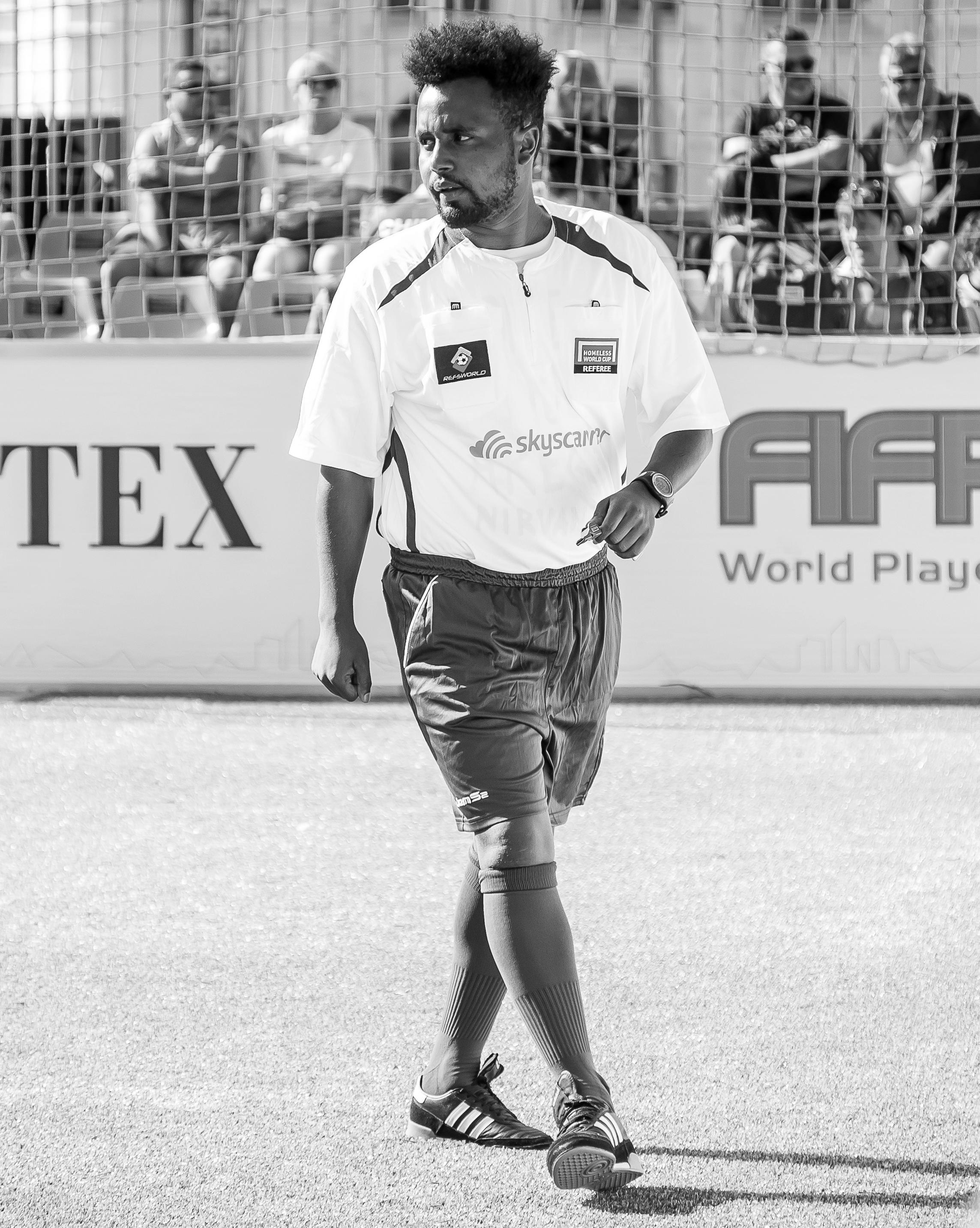
Leite now runs an annual referee training course in Norway with Frelsesarmeen (Salvation Army) as part of their sports academy. This year he fulfilled a lifelong dream of traveling to India, where he trained a group of 20 to 25 referees from India and Bangladesh in collaboration with Slum Soccer.
When you see him in control on the pitch, commanding the space and smiling encouragingly to the players, it’s understandable that you’d assume he’d been doing it all his life.
Leite’s journey from player to referee
But in 2013, Leite was on the other side, representing Norway as a player at the Homeless World Cup in Poznan. He jokes that when coaches in Norway suggested he refereed at their national tournament that he didn’t even like referees. So why would he become one? After giving it a try, he changed his mind and hasn’t looked back since.
One of the things that makes Leite such a great referee, especially at the Homeless World Cup is that he understands how the players feel. His journey to the tournament, like all the players at the Homeless World Cup wasn’t simple.
Leite moved to Norway from Ethiopia as a young teenager. He’d been living with his grandmother and brother in a small village and for years they had been sending letters backwards and forwards to his parents who were already living in Norway.
When they arrived, it was going to be a great family reunion and an opportunity for a new life in Europe. However, when he and his brother arrived, it wasn’t what they had in mind.
Leite and his brother were very isolated, having moved to a rural area of Norway with a population of 3,000 people.
Leite explained, “It was very difficult to be part of society because I didn’t speak the language. No one spoke to each other, and I was very alone.”
Despite this, Leite was still looking for the positives, but his brother had a different outlook.
“I was happy, I thought it was ok – I’m in a better place. But my brother didn’t feel so good about it.”
A difficult realization
During this period Leite found out that his brother and his parents were not biologically related to him.
“That was a big hit for me. I am just alone. I don’t know where I came from. A lot of things happened in that one year.”
In this time, his grandmother who him and his non-biological brother had lived with in Ethiopia had died, taking any knowledge of the truth with her. He had no one to turn to for answers.
It had been around 18 months since they’d arrived in Norway and Leite was now 15. After finding out his parents were not his biological parents he was taken into care of the state in
Norway and moved to larger nearby city, Stavanger. He was considered too old for a foster family so went to live in a youth housing center. Leite explained a lot of the young people had been moved there because they had a track record of bad behavior or causing trouble.
“I was there because they didn’t have a place for me — a place for good kids.”
He found that the way to fit in was to start getting involved
with what the other young people were doing.
“I was running away from my problems. It began with regular smoking; then we would sneak out and smoke other things. It was my first love when I smoked marijuana for the first time. I was like wow! I need this for my whole life! It was as if everything was floating away. All of my problems were disappearing.”
“After that, it [marijuana] was not enough, I did a lot of
4 // STREET SENSE MEDIA // MAY 31 - JUNE 6, 2023 NEWS
Adil Leite refereeing. Photo by Anita Milas
different drugs just trying to get that same feeling. That first feeling never came back. After that I was paranoid, but I kept trying a lot of things.”
Tackling addiction
He wanted his life to change and to stop his addiction, but it wasn’t easy to do alone.
“It’s so difficult to quit without help. I was doing it for a lot of years. I tried but I didn’t make it because I wasn’t doing it for the right reason. I didn’t make it on my own.”
“There was a guy who was working at the Salvation Army, and he knew I was struggling. I remember he said to me, ‘You like football? Do you want to come and play for an hour or something?’”
“I made a lot of excuses why not to go, but he didn’t give up. He just said — give it a go, try it for an hour, for 45 minutes even and you never have to go again if you don’t like it.”
“It was like a flashback to when I was young — the good memories came rushing back. For that one hour I forgot everything because I was running with the ball — I was focusing and everything and it hit me – oh I want to do this more.”
That first training session was a turning point for him.
“I came home, and I was so tired. I remember I didn’t even take a shower; I just fell asleep. Before that I had to take something to sleep. I remember waking up in the morning and thinking, ‘Oh I didn’t take anything.’”
After becoming a regular at training sessions, Leite was offered a once in a lifetime chance.
Representing Norway at the Homeless World Cup
“A lot of people talked about the Homeless World Cup as
if it was a miracle or a salvation or something and I wanted to experience that.”
To join the team, Leite had to sign a contract committing to staying off drugs and alcohol. This was difficult, but he managed to stick to it and travelled with the team to Poland.
“When I was in Poznan, I understood what they were talking about. It wasn’t just the football; it was like a family. They [the Salvation Army] give you everything from day one to the Homeless World Cup.”
On returning from the Homeless World Cup, the Salvation Army have a map where players go onto the field as players and leave as something else — whether that be a coach, a referee, working in media etc.
Initially Leite tried coaching, but he explains at the time he was shy and didn’t feel comfortable. A few years later, the team at the Salvation Army approached him with a new suggestion.
Becoming a referee
“We had a national tournament in Stavanger, and they said, ‘now you’ve been playing a lot of years – what do you think Leite? I thought — referee? No, I hate referees! I don’t understand referees!”
They persuaded him to give it a go, saying he felt like that because he didn’t know what it felt like to be a referee. He gave it a chance and took part in a referee training programme run by Homeless World Cup head referees Paul Nagtegaal and Iain McGill.
After he’d refereed at the national tournament and completed the training, they chose him to referee at the Homeless World Cup in Glasgow.
“I remember I was refereeing Mexico against Scotland and Scottish people love football so when Scotland played it was like a final. I remember I did something wrong, and I thought I just want to go home.
It hadn’t even been one minute, and I remember one of the
referees came to me and could see that I had frozen, and he said to me, ‘You’re going to make it Leite — just focus on one minute at a time.’ After that I took it minute by minute and it was a fantastic feeling.”
After playing street football for nearly five years, Leite has found his love of street football has been reinforced in his new role as a referee at the centre of the court. He now has one aim, to give something back and “to give people hope.”
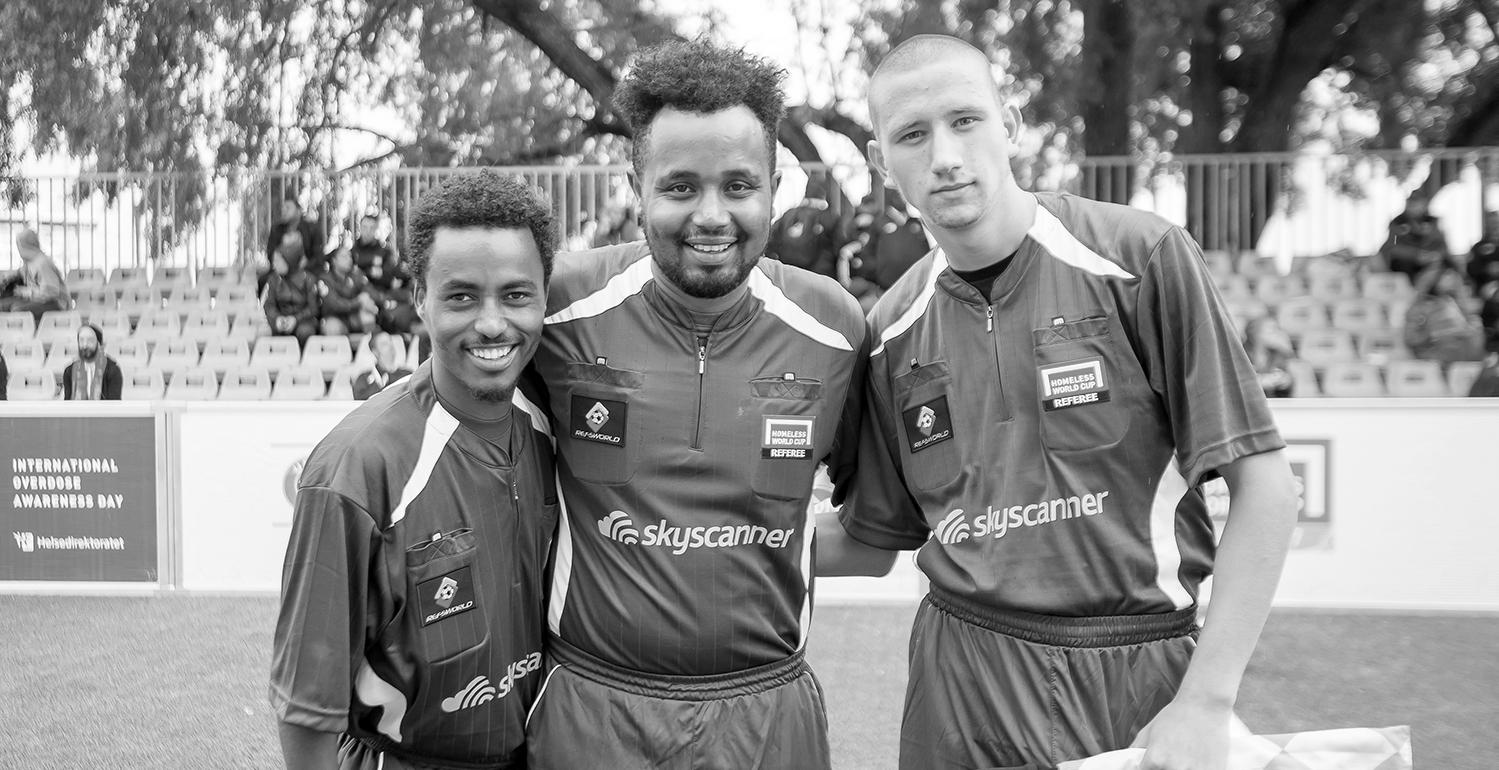
“Everything around street soccer and the Homeless World Cup is to give people hope. Everyone understands you, people don’t judge you because of your mistakes before, they look after you.”
“The Homeless World Cup and the Salvation Army give you a taste of how life can be and when you taste it you want to have more. This is what people forget, they think it’s all about football — but it’s about that little bit of hope.”
This month, Leite will share his love of refereeing with a new cohort of referees in India and with his inspiring words and experience, the new referees won’t only leave the course with a shiny new whistle after taking a step on a new career path, but a feeling of hope for their futures too.
The Homeless World Cup is an international street football tournament, which takes place in a different country each year. The Homeless World Cup is also a year-round network organisation –supporting and connecting grassroots charities that are using football to support people who are homeless and socially isolated to change their lives.
Since it began in 2003, it has benefitted more than 1.2 million people.
Over 500 players from more than 50 nations participate each year. In 2023, the Homeless World Cup will be held in Sacramento, California. It’s the first time the tournament has been held in the United States.
STREETSENSEMEDIA.ORG // 5
Courtesy of the Homeless World Cup / International Network of Street Papers
Adil Leite with Amaniel and Stefan at the Homeless World Cup in Oslo in 2017.
Photo by Anita Milas
Aranka Halmi: ‘Sometimes things go sideways, but my take is that it’s all good’
POLÁK Fedél Nélkül
Fedél Nélkül: You are a splash of vivid colour on the street and, what’s more, you’re quite a unique phenomenon among the vendors! When people buy the paper from you, they also get a show because you play the flute too, right? How did this routine develop? What came first — playing music or selling the paper?
Aranka Halmi: In the past, I couldn’t find work, so I went out to sing in the street. Then after a while I could no longer sing: a piece of bacon went down the wrong pipe and slid between my vocal cords. This made my voice as high as a fairy tale character; the ambulance driver thought I was messing with him! I was not messing around; it had to be removed surgically, and I could barely speak for two years. My voice will never be the same as it was before the surgery, but I can perform a song or two again. Then I set out to play the flute, which didn’t work at all, so I enrolled in the District VIII music school. I’ve been going there ever since, once a week. Then it turned out that, besides playing music, I could also sell newspapers. That’s how Fedél Nélkül came into the picture.

What do you see as the charm and significance of the papers sold by the homeless?
Fedél Nélkül is awesome because it introduces people to the “cream” of the homeless, through whom they get to see that their existence doesn’t just mean that they wander the streets, pissing themselves and being raggedy. A lot of people live in housing deprivation. To some extent, the paper raises awareness that many talented individuals are, in fact, living in the streets. They are down and out for some reason, people whose lives took a wrong turn — but they haven’t given up. They have refused to fall apart completely, and instead they fight. It makes me especially happy that street papers are a way that people learn that, yes, these individuals are homeless but, no, they don’t let themselves go and instead they make something out of nothing.
What do you get out of being a vendor?
This is the other thing that makes me love working in the street. People come up to me: they trust me for some reason, they start telling me their life stories, and they are waiting for my help – for us to find a solution together. I had a customer who complained a lot, and he visited me for half a year, just as one might see a psychologist. After a while he disappeared; he didn’t come again. Years later, he walked up to me and asked if I recognized him. “I’m the boy you helped,” he said. This is a second vocation for me — it’s a kind of spiritual aid service.
You clearly really value the feedback you get directly from your customers; recently, however, you were also recognized by your colleagues, when you came second in the Vendor of the Year category. How does it feel to be there among the best?
I don’t want to be first, and I don’t strive for that. I didn’t even expect to be nominated by anyone! It’s like when I used to do sports; I didn’t compete to win, I just simply did. I am not the competitive type. When I received the award, it showed that I’m not just a lame duck: I’m a top vendor who does her job well, and whose work is acknowledged. That does feel good, but I never think about rankings, about defeating others.
Even though you have had to overcome great hardship in your life, it is quite rare nowadays to see a person with
such a positive and life-affirming radiance as you exude. What is your secret?
To tell you the truth: I hate complaining. Sometimes things go sideways, but my take is that it’s all good: the sun shines, the rain falls, the sky is blue, the grass is green, the plants grow, the animals live, the children are cute. It is violence that I loathe. War. I couldn’t even slaughter a chicken — I am emotional, I respect life very much. It would be nice if politicians would play chess instead of war, and then people wouldn’t need to get shot. I feel the same about abortion, except no one is horrified by the fact that the fetus is ambushed with an instrument, while it’s trying to protect its little life. I am certain that this topic hits so close to home for me because I experienced it myself: I, too, was aborted by my mother, yet I survived. Perhaps because I was meant to help others.
6 // STREET SENSE MEDIA // MAY 31 - JUNE 6, 2023 VENDOR PROFILE
ZSÓKA
Translated from Hungarian via Translators without Borders Courtesy of Fedél Nélkül / International Network of Street Papers
Photo by Szofi Mihályi
Tomislav Martic: ‘My work as a Liceulice vendor has had such a positive effect on me’
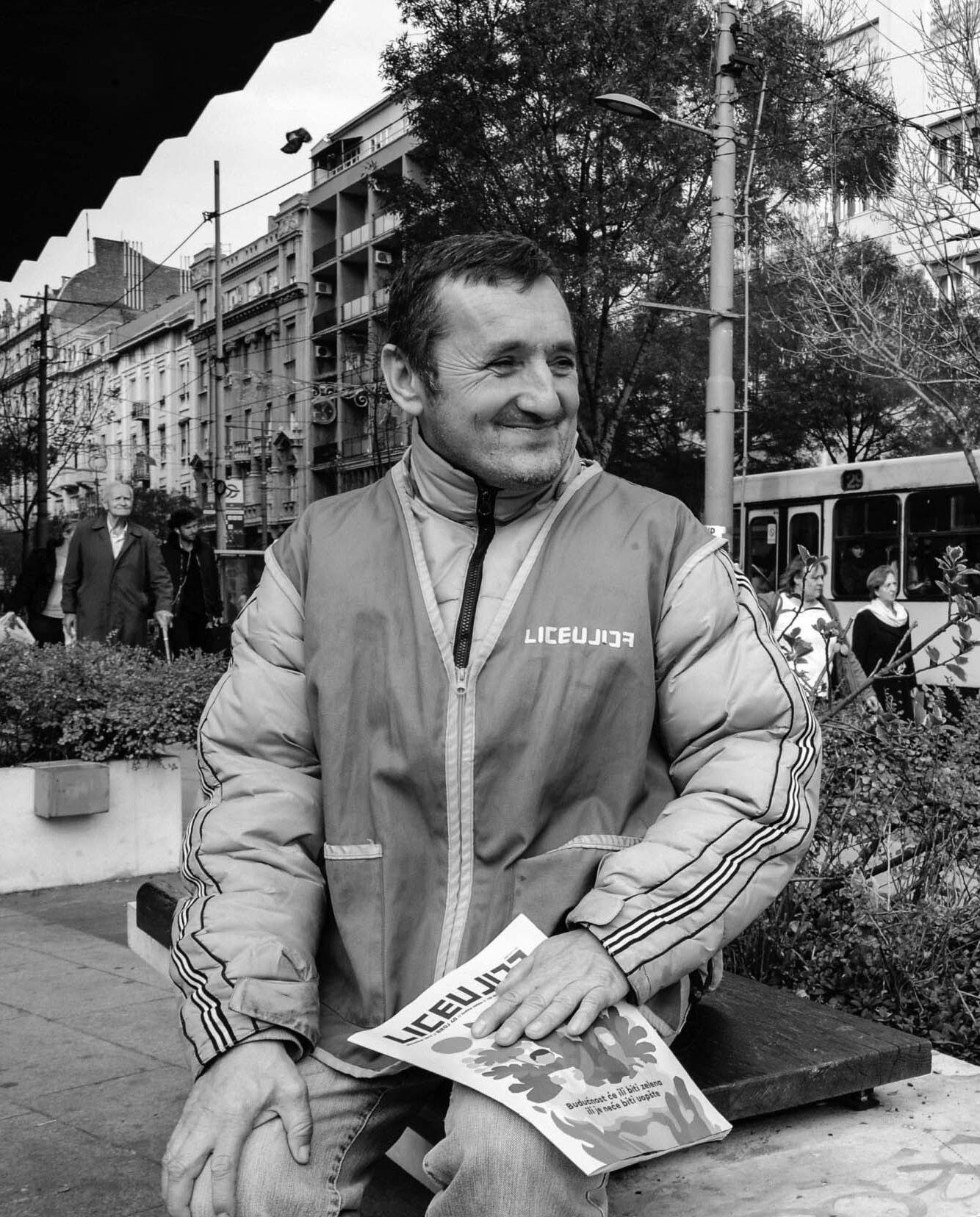 TOMISLAV MARTIC Liceulice
TOMISLAV MARTIC Liceulice
Iwas born in a village in southwest Serbia, near Kopaonik Mountain. I finished special high school, which was hard, but the teachers loved me. My sister and I had a wonderful childhood. When our parents died, we sold the flat we were living in and went out in search of a better life. During the 90s, I lived in Gornji Milanovac, where I worked in construction. Construction is really hard work. I hurt myself working in security, and afterwards we came to Belgrade. I worked as a doorkeeper for a trucking company. Now I live with my sister in a flat in the suburbs of Belgrade, paying rent. I have a niece, sister-in-law and a grandson, and we all get along just fine.
We don’t go back to the countryside we come from now that we’ve sold our old flat. I talk to my childhood friend over the phone. He was my neighbor. It was hard for me parting ways with my friends and teachers from elementary and high school. They were all good to me. Coming to Belgrade was also hard for me. My niece found an association online called Living Together, where I can socialize with others, work and do sports.
I play football, basketball and table tennis in the association. Back in school, I was a big fan of PE, but not so much of math. I train regularly. We have our own team. We are called Playing Together, and we are all palls from the association. We have played basketball in tournaments for people with developmental disorders, and we’ve won medals on two occasions. We have applied for the Special Olympics, and we are preparing for that already since we will face strong competition there. At the moment, I have a hip surgery scheduled. I think a lot about it, and I’m getting nervous. I hurt my hip when I was a kid and suffered a dislocated hip. I still played basketball without issues, and it didn’t bother me much. Our drills are really hard, but oh Lord are they good! I played table tennis for the national team, in doubles, and we took the fifth place. We could’ve done better, but the competition was fierce.
I’ve had so much support from the association. They were the ones who encouraged me to start selling the Liceulice magazine. I had quite a case of the jitters before I started selling, and I took slow sales badly. Now everything’s different: everybody knows about the magazine, and I have regulars. I have been seller of the month several times, and one year I got a medal for successful sales. I even sold English-language issues of Liceulice, and foreigners bought them.
My work as a Liceulice vendor has had such a positive effect on me, and it pays my wage and my bills. I don’t sell just in one place. I’m used to walking around and that suits me. The secret of a successful sale is saying something like this, Hello! Good day! My name is so and so. By buying this magazine, you can help others. A lady once told me that I’m always smiling and that’s why she buys from me. The more you engage with people while selling the magazine, the more people will buy it.
I hang out with a lot of other sellers, particularly Svetlana, David and Nenad. Me and Svetlana go way back, and we drink coffee together regularly. We all talk over the phone. I also really like socializing, and I’ve got a lot of friends in the association. We attend workshops, where music is my favorite activity. We even have food here, which means a lot to me. I only know to cook some eggs — nothing more!
I like to sleep when I’m at home, and I wake up late. I like
drinking coffee — just one in the morning and that’s it. In the evenings, I like looking at the Facebook newsfeed. I have a lot of friends I keep in touch with. I browse sports gear and listen to music. I can’t wait to retire. I haven’t been working for a long time, but I do have 20 years of employment behind me. If I could retire soon, I’d be a happy man.
I’d like to spend my retirement in Belgrade, still selling Liceulice, as doing that fulfils me. The best time of my life is
right now — when I’m out selling the magazine. My dream is for me and my sister to buy our own flat and to have our own roof over our heads. I hope we can manage to make that dream a reality!
Translated from Serbian via Translators without Borders Courtesy of Liceulice / International Network of Street Papers
STREETSENSEMEDIA.ORG // 7
Photo by Sara Ristić
Nikki Smith on helping others — and herself
ANNEMARIE CUCCIA Staff Reporter
The first thing Nikki Smith noticed when she got off the train from Philadelphia to D.C. was that she didn’t see any stray animals. That made sense, she thought. It isn’t safe for animals to sleep outside.
But then she noticed how many people in D.C. slept outside every night, far more than she’d seen in Philadelphia. She was horrified. The outdoors were not safe for people either.
In the six months she’s been in D.C., Smith, 44, has been able to do a lot of things for herself. She moved from a tent into a shelter. She has spent hours writing. And she always keeps her nails and hair looking sharp. But she’s also devoted plenty of time to helping others still sleeping outside, from doing outreach with the advocacy organization People for Fairness Coalition, where she co-leads the Rhonda Whitaker Streets to Life Initiative, helping women experiencing homelessness become involved in advocacy, to testifying regularly in front of the D.C. Council.
Street Sense caught up with Smith, who’s also an artist and vendor with Street Sense Media, to hear about her move to D.C., her busy life and how she balances caring for others with caring for herself.
The following interview has been edited for length and clarity.
Can you introduce yourself to our readers?
My name is Nikila Smith, but I prefer to be called Nikki. I am a married woman who’s homeless. I love to say that, it doesn’t bother me. I’m new to Washington, D.C. I love Street Sense Media. I would work for y’all seven days a week if I could.
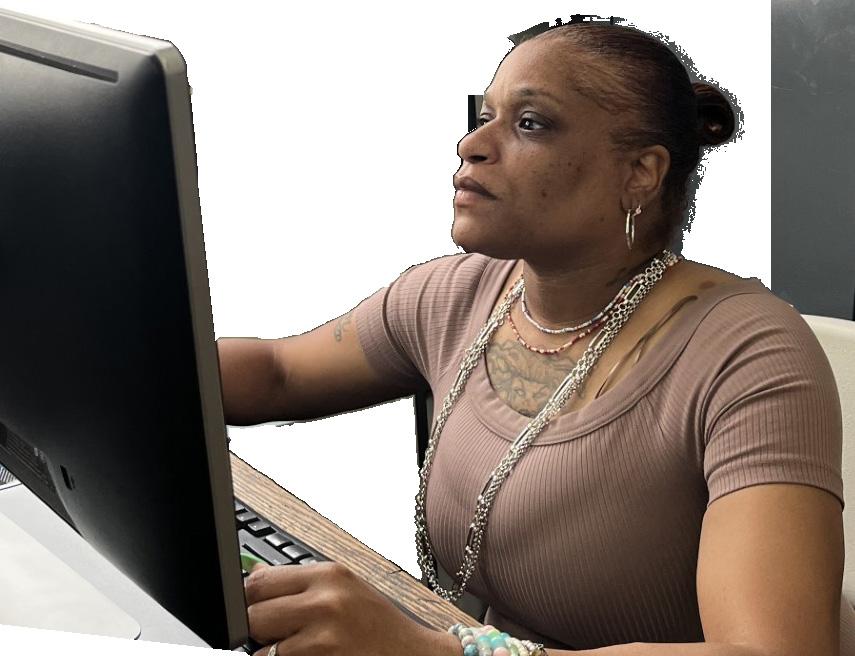

Why did you come to D.C.?
There was a lot going on. And I just was not happy with my life, and I had a marriage and I had a family, and it was like I was at a dead end. And I was not gonna make it. So I just picked up and I left, thought I’d start over fresh. I’m here to make God happy, that’s why I’m here. People I feel like know me here, more than the people who should have known me. Coming over here was just a blessing. I can’t believe I’m over here.
You’ve really gotten involved with writing, I think you come in every day with ideas and read at the Street Sense Media’s poetry slam in April. What inspires your writing?
Life. People. I always wanted to write and ask questions, but it was hard to do because people don’t have answers or they don’t want to hear you. So I never would have imagined I would be writing articles. Some days I’m just ecstatic, like I have written so many poems, and I’ve been going back and looking at them like, “Did I write this?” It is so awesome to be around others who inspire me. I really, really love it. I wouldn’t have it any other way.
What role does writing play in your life?
I think I would be stressed right now without it, because sometimes you have a lot of stuff that you want to say and you just can’t get it out. So my way of releasing it is through writing. I actually like to do premeditated writing, because I write something in advance and then it’ll come back up and I’m like, “Oh I already got that.” It feels good to do that.
What inspired you to get started with outreach?
I was already doing outreach out of my tent — I’m in a shelter right now but before I was living in a tent. But I work for People for Fairness Coalition (PFFC) now, I am a co-director. What inspired me to join PFFC was, they had a vigil for the homeless people who die every year, and I was interested, but I thought they could do better. But how are you going to tell someone to do something better? If you have some thoughts you should join, not just throw stones at them.
What’s it like doing outreach while still homeless yourself?
I never really think about myself. I’ve been homeless all my life really, on and off. It’s been happening, that’s how our system is designed. But you can only do what you can do, so I’m doing what I can do right now, and it’s to help others. I don’t feel sorry for myself.
It was hard when I first came here because I knew about mental illness, but not to this extent. I still can’t figure out why people are out here like this with no help. No, I can’t get used to that. But I care to learn, so I communicate. It means a lot to know what triggers people, and what makes them happy. I try to do my best, but I’m only human too. So I have to let them know I’m going through stuff too, I might not look like it, but we’re all in the same boat.
I think I’m fighting with myself, do I want to adapt or do I want to let everyone know that’s not how it’s supposed to be? These people are not supposed to be out here, they’re supposed to be getting help. How could you see somebody with dementia or Alzheimer’s disease sitting outside? That’s not right.
When I’m coming into Street Sense, I have my music on and I’ll be jamming and I’m like “Yeah I’m in a good mood” but then I’ll turn around and see somebody laying on the ground. And you help one person out with something to eat, then it’s more and more and more. You can’t help everybody because then you’ll be broke, so some days I got to say no. And it hurts.
I’m irritated, some days I’m scared. “Am I going to die out on the streets with no roof over my head?” That’s a scary feeling, cause there’s a lot of them that’s older than me that’s
still out there. Let’s be honest, they’re going to pass away on the streets. That’s, whew, that’ll mess your whole day up too. All I can do is what I can do. So I try to make people comfortable, talk to them like a good friend. I would like to be a case manager, so I’m always going to listen to what’s going on. As long as God puts breath in my body, I’m always going to help others.
What more do you feel D.C. can do to end homelessness?
It can be ended, it can. Even in Philly, when I was walking around, I saw buildings they were not using. You can turn it into a shelter or apartment real fast. I used to model buildings and do home improvement and stuff so I know how fast you can turn a room into an apartment, it’s nothing, it takes no time.
What would you want to do as a case manager?
I like the setup they got at the Downtown Day Services Center, but the problem is they close. Weekdays it’s from 9 a.m. to 5 p.m., and on Saturday it’s from 10 a.m. to 3 p.m., so they don’t got nowhere to go after that. I want to have something for night time. And that’ll bring most of the people off the streets too, I think that’s doable. I’m going to hear when they say that lived experience is acceptable to become a case manager, and then I’m gonna go. I believe in five years it’s going to be done. These are my plans.
What do you like about D.C.?
Don’t laugh at me. But the people here are so bougie. Like when I first came here, nobody wanted to speak to me or anything, but I came to understand, I’m kinda bougie too. I like the high maintenance thing. I’m into the high quality, but I’m not into treating people like trash. I’m not into that. In the little bit of time that I’ve been in D.C. I’m making a difference because I’m all over the place. I didn’t even talk about half the stuff that I do, because I’m not supposed to, that’s behind the scenes.
8 // STREET SENSE MEDIA // MAY 31 - JUNE 6, 2023 VENDOR
PROFILE
Nikki Smith, who moved to D.C. six months ago, is already making an impact with her art and advocacy.
Photo by Annemarie Cuccia
Carlos Carolina and his hopes for the future
ANNEMARIE CUCCIA Staff Reporter
When Carlos Carolina thinks of what he wants for his children, the message is simple: do good.
Carolina’s done a lot of good in his life, from helping people experiencing homelessness for over a decade, to spending weeks penning poems for Street Sense about identity and civil rights. But he hopes his children can do even more, and he wants to help make the world a place that will support them in that.
Carolina, 34, grew up in Southeast D.C. He received his GED while incarcerated in Maryland, and joined Street Sense Media in 2019. He always has his black notebook of poetry, excitedly sharing lines and ideas from it in conversation, including in this interview. Street Sense caught up with Carolina to talk about returning home after prison, his favorite spots in D.C. and his hopes for his children.
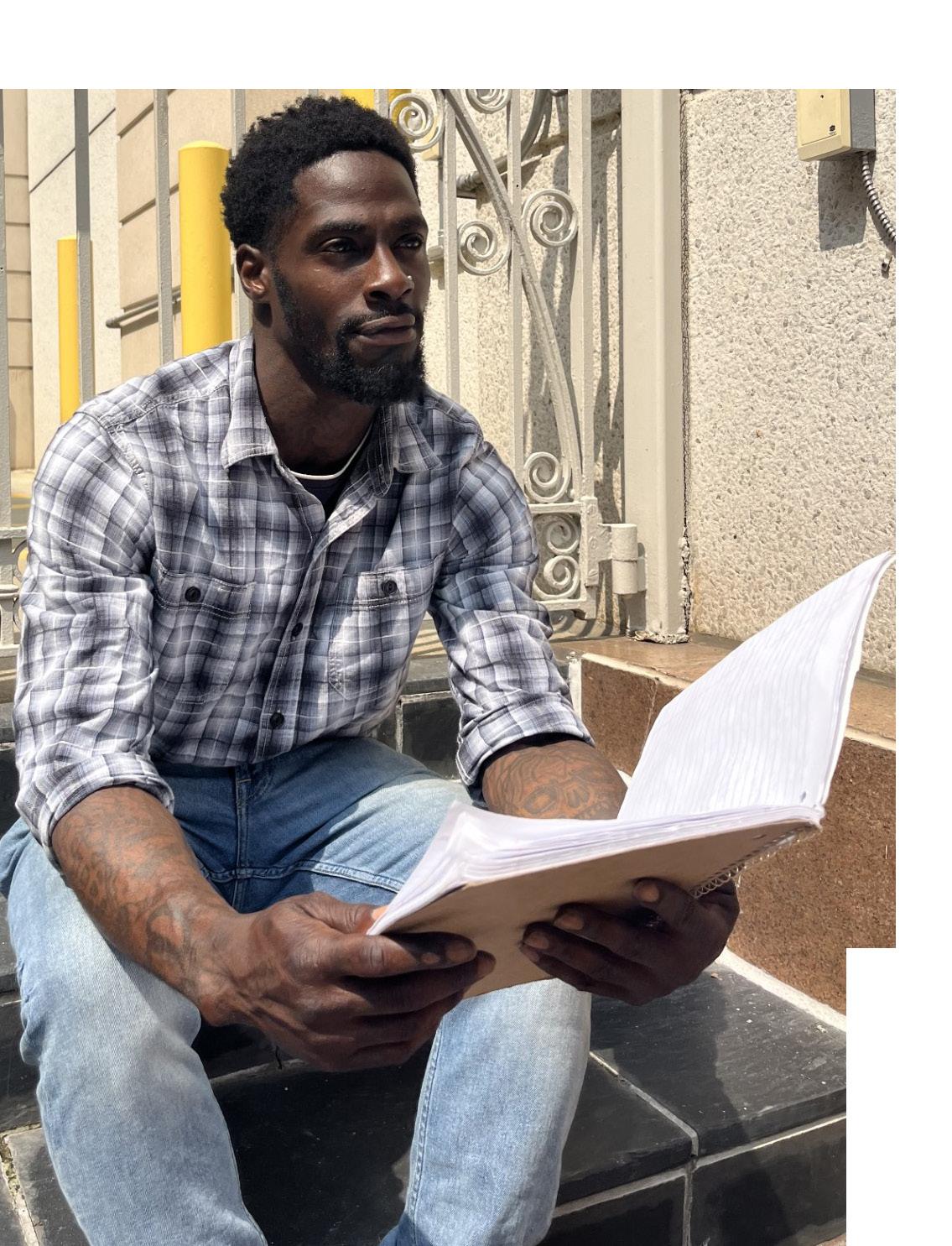
This conversation has been edited for length and clarity.
You’re always writing, and working on a new poem. What do you like to write about?
Really, I like to write about life, and I’m learning to be
I met a lady named Ms. June Lewis. She was telling me about the papers, and I appreciate her so much for that, because if she ain’t never tell me I would never have came here and thought that I could sit down and write. Like I say in one of my writings about the homeless community, I say, “My goal is not to uphold but to uplift the people.” I don’t want to keep people at a state where they are constantly dependent or relying on. Like nah, I want to uplift you to the point where you can be independent and rely on your own hard work and your own craft. Some people got abilities, they just got to know how to utilize their abilities and their gifts in the way that it works for them.
What do you like to do outside of Street Sense?
I like to dance, I like to sing a little. I like to act. I like to draw. I like to bike, I like to skateboard, I love to go in the water. I just like to be active and do stuff that’s active. I’m really not like a TV person, if I watch TV it’s like sports, otherwise I’m more of an adventurous type person.
Do you have a favorite spot in the city?
I like The Yard area. I used to take my kids over there to play in the water. There’s a waterfall. This is my daughter’s favorite spot. [She often says] “Daddy, daddy can we go to the water?” and I’d be like “Which one?” and she’d be like “You know which one!”
My son is eight, my daughter is six. She is about to turn seven in August. My son’s about to turn nine this month. Yeah, I really miss them, because I do a lot of planning for them
I like the Union Station area. That’s because I feel acquainted to that area. Because that’s where I was at when I was homeless. So it was just like I had people looking out for me and I’m looking out for people, we had an understanding, a bond amongst each other in a way that, even though we out here, we can still be out here and be out here together. There was one point in time I can remember, where the Union Station area was for the homeless people to go. now, to be honest with this whole homeless I really feel like it’s a pandemic. I’m thinking of ways that further on down the line, I got daughters, I got nieces, I got my nephews, sons, how they don’t end up in this situation I’m in. I want a lot of these youngins to know, like for real, do good. And I don’t say that like I’m being funny, do good. Don’t look down on nobody. Because one mistake, and it don’t even gotta be a mistake, it could be a situation. It could be a situation that you ain’t even caused, but it calls for you to move your feet. You out here with the same people you were
Before I became homeless, I used to work, I worked many jobs but I think when I started to realize homelessness, I was working at a McDonalds, and I worked overnight, I got off at 5 in the morning. So I prepped the breakfast food, the dinner food we’d throw away. But instead of throwing away the food, I might bring some food home. So I walked through the streets, and I had Big Macs, double cheeseburgers, McChickens, no telling what I might have, I got it though. And I’m not selling this, I just give it. And then circumstances, you know, led me to be out here in the same predicament as the same people I could have been looking down on, “Go get a job, why are you asking me for food?” Man, I’m glad I did not have that mentality. Because now I’m right out here with these same people, but it was just like, man we know you.
Just coming up, I always checked in with people that was homeless. I have friends out here, I’d be like “Man, I might stay out here with y’all for the night, or if I can get you to come over to my mom’s house, girl’s house, sister’s house, get you out the streets, take a shower.” To be honest, as of right now, I wouldn’t take it to that extent, that’s why I’m learning the proper resource places. Instead of me taking you somewhere I could probably show you the best place to go, but younger [people] don’t think that.
How long were you homeless for?
A couple times. I was on probation in Maryland and it got to a point where I feel as though it was too much for me, so I cut my ankle monitor off, came back to D.C., and it was just like from that point on, I was out here. Everybody got they different stories, when you got the police looking for you, you just don’t want to be over at your folk’s house, so that’s what took me to being homeless. I’m glad I got people who care about me, and if I didn’t see it then I see it now.
What was it like leaving prison?
It was hard and confusing. I’m writing about bringing more effective programs to the penal system so when inmates come home it don’t be hard and they don’t be confused. Because once you’ve gone away from society for a certain period of time, you have to relearn how to become a productive citizen. But for the most part, it’s like coming home not knowing what’s going on, and really having no sense of direction, not knowing what laws has changed, you tend to come out and go for what you know, if you don’t have a strong game plan. I noticed every time I got out, within 90 days I’m back in jail.
And I learned this by reading books like “The New Jim Crow” by Michelle Alexander. Once I started to learn about the prison system and what it is, I was angry. And that’s when I really became passionate about trying to come up with programs. No tricks, like no trying to get you out and get you back in, like for real come out and be part of the society where you can add to the economy and become a productive person.
To be honest, that’s what really saved me for real — prison. Jails, prisons, programs. If it wasn’t for the programs — cause I did like volunteer appreciation, conflict resolution, anger management, whatever program I could get into — that kept me out of a lot of the whatever, whatever.
What are you looking forward to?
I’m excited for our poetry slams, for our plays, and to be honest, for some music probably.
Carolina also wanted to share a poem with readers, which he read out loud.
Still looking for my mailbox key.
And you know what I think?
That it’s in my wallet, the one with the pocket.
And last week I lost it, I must have dropped it.
And ever since then, my world’s been down, because also my ID and library cards haven’t been found. And guess where it’s at?
In my wallet, the one with the pocket.
And since then I went and applied for a new ID that come in the mail.
But still, I’m looking for my mailbox key.
STREETSENSEMEDIA.ORG // 9
Vendor Carlos Carolina talks about his time in prison, his children, and how to do good. Photo by Annemarie Cuccia
OPINION
Get out the way!
DONTÉ
TURNER
What’s the purpose of building a bike lane if motorists keep parking in them? Drivers drive in the bike lane, cross without signaling, cut bicyclists out the lane, speed and nothing is being done about it. Listen, government, why are you all not enforcing these rules? People’s lives are at stake.
You’ve used tax dollars to cut off roads to make these bike lanes, and remake traffic lights to add pedestrian lights but,
ART
motorists are not obeying them. If you can make an agreement to start putting cameras and fining people illegally in bus lanes, you can do the same for the bike lanes. Start fining them X amount of dollars, start enforcing rules for what’s right and not letting specific people or classes get away with things. You were elected to help us feel and live safe during these crazy times. Not just sit back and not do nothing.
Most of us use bikes as a means of transportation and we would like to have our space so we don’t be in y’all’s way. Y’all don’t want us on the sidewalks or in the middle of the street holding up traffic, right? So stay the hell out of the lane then.
Have a blessed day.
Donté Turner is an artist and vendor with Street Sense Media
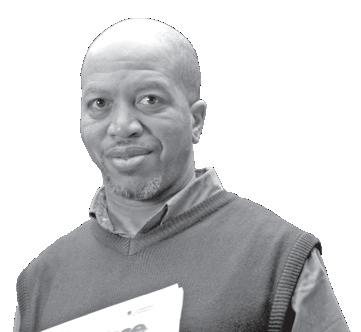
Do you gamble or think strategically? How poker changed how I think about life
JEFFERY MCNEIL Artist/Vendor
Some people learn economics at places like Harvard or Wharton, but my economic education started in 1996 by watching the History Channel.
I was almost 30, flipping burgers at a Denny’s in New Jersey. I was an economically conservative guy who never gambled, played the lottery or did anything risky with my money.
The word “finance” was foreign to me. I thought investing was a game for George Soros and Warren Buffett, and I had no idea about 401ks or index funds. Well-meaning people would condescendingly say to defer to professionals rather than learn how to read an annual report or the Wall Street Journal or sit at a board meeting.
Although I lived close to Atlantic City, the horror stories about gambling kept me away.
During the 90s, a stigma was still attached to gambling, and many of the casinos had ties to the mob. I lived with a lousy gambler and I had to pay his gambling debts. Coming from a spiritual family, gambling was too seedy and sleazy for me.
While I avoided the gambling bug for years, it finally snagged me when watching the History Channel about poker. I saw outof-shape, overweight men, surrounded by half-naked women, laughing, making millions — and everything was legal.
That was the first time I heard names like Doyle Brunson, Stu Ungar, Phil Ivey and Daniel Negreanu. Little did I know 20 years later, I would one day meet and play some of those guys and hold my own.
After watching poker, there was no turning back. My parents had great expectations for me, wanting me to be a doctor or lawyer. But I hate corporate America. I didn't care if they paid me millions. I hated living by someone else's rules.
I fell in love with poker. What I loved is that nobody cares what color you are. I've seen blind men ship it all in with the nuts. Do I care if I play with Donald Trump or David Duke? If they push when I have a hand, I will ship it all in without hesitation.
Many people think poker is gambling, but it’s an occupation no different than being a psychologist, engineer or banker.
In poker, you have to be all three. I have a rule. I don't play 20 pots unless I have a premium hand because when you play at a casino, you don't know the players, so you need to know who plays foolishly and who plays good cards. If a guy never
plays a hand and raises, you know he’s got a monster.
It’s good to be underestimated because many think I’m nice. They believe I’m incapable of bluffing, so I get respect when I raise a pot. Another strategy is to play tight, then raise, then everyone will fold.
That’s the beauty of poker — each game is different. Sometimes a lousy poker player starts playing like a pro, while a pro can go on tilt and lose everything. My strategy is to be alert, get rest and stay fit so I can pick up on others' weaknesses.
There is math in poker. When you play at a high level, I see poker as no different than playing the markets. Poker is a lot more volatile than Bitcoin or currency exchanges. As in any market, if losing a few thousand dollars gives you stress, then that’s not the game for you.
The banker comes to the understanding that losing money is inevitable. I have been in games when I was down to my last nickel and returned to win the tournament. Great investors don't play with their rent money.
I believe I’m successful as a writer, bartender and street vendor because I understand good times and bad don't last forever.
I consider my broke days my education days. I was broke a lot because I needed to be more knowledgeable. Great poker players have great mentors, but I wasn't trained, so I did not understand the position, card charts or what hands my opponents could have. I wouldn't read, study or prepare, and I looked as poker as relaxing.
Poker gives you confidence. I’ve won it all and slept in bathroom stalls. My greatest night playing poker was I started with $2,000, lost $1,800, played another 18 hours, and made a $5 profit.
My life changed when I won a bracelet at the MGM. I attribute my success to some game theorist players that trained me, and I was humble enough to change the way I played. I treated poker like a job. I started studying my games, slowed my thinking and analyzed everything before I move.
I also know each game is different. I’m a professional tournament player. I’m okay at cash games but realize I have a terrible temper and am unsuitable for low-stakes cash games. I will probably be a great high-stakes cash player because I play better when the stakes are high but don't have the courage to
put my bankroll through the stress of a higher limit.
Poker is like being a good mixed martial arts fighter. A good trainer picks the fights. You must find the bums of the month to beat up on to gain confidence against better players. Like selling newspapers, I know the days when the fish are jumping, and days you shouldn't be near a casino. That comes through experience.
I know how to go home. If I lose, I just get up and leave. The same thing if I’m up, I know me, and I can't take a bad beat, so instead of losing my temper when I’m up a few hands, tomorrow is another day
Poker gave me everything I couldn't get had I graduated from a New Jersey college. Although some have pointed out the thousands I lost, where else can a poor man have the opportunity to travel to places like Belgium and Ireland as well as California, Florida and all over the east coast?
I love showing up to places where nobody knows me. They don't know I can speak four different languages and I studied finance. Not only am I a pretty good poker player, but I can also hold my own in chess, horse racing and picking political races. I wasn't born Stu Ungar, I don't have a photographic memory, nor do I believe in game theory or these other complicated concepts. I hate complexity, and my strategy is simple: observe you, see what you play and figure out what hand you’ll ship your chips to me.
I don't feel so bad about being broke because I’m one of the few survivors from the heydays of Atlantic City while many of the regulars are not here or back to the daily grind of working a shitty job.
I wouldn't want to trade places with any of them. I’m glad because of a bad bet, I ended up in Washington, D.C.
While I consider myself a professional, I don't play as much as I once did, but the lessons I use help me in everything I do, from writing to bartending.
We all are poker players but don't know it.
10 // STREET SENSE MEDIA // MAY 31 - JUNE 6, 2023
Colors
LADY SASHA
Artist/Vendor
Colors...
Purple.
Purple reminds me of the Fourth of July. Red, white and blue. But I am not political like others. What if there wasn’t so much division in the United States? Blue and red makes purple ... with differences aside.
Depression
JACKIE TURNER
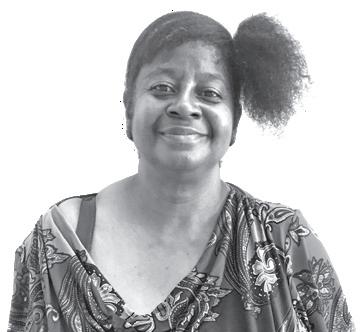
Artist/Vendor
When the sadness creeps in there is no warning.
It unfolds a little at a time, like warm, slow syrup.
Sorrow clings and drags, leaving hurt and anger.
You try to shake it off but the thickness makes it hard.
You have no idea how long it will stay.
You just pray it will leave.
Frozen
MARS
Artist/Vendor
Frozen and black, don't look down; never come back. Crevasses everywhere, a man's contempt; no other choices. Mount McKinley, my heart is in check. My lungs are gray with pulmonary edema.
My nose frostbit, and losing loved ones was ever so distant. Three weeks up, and one week down. I made it but lost my soul in trading for it.
My accent to living someone else’s dreams. My climb to the peak of Mount McKinley in 1999.
On top of the world
LEVESTER GREEN
Artist/Vendor
One of my greatest gifts and attributes to my survival, when I was homeless, was the time when I won the Tenleytown online Twitter sweepstakes contest. I won a membership to Tenleytown Sport and Health, which has closed since. But it was a refuge to get out of the cold and catch up on sleep with quick morning naps somewhere cozy onsite, and to catch up on sports and news. It helped give my body a break periodically. I also received a gift card amount of $85 at Cava. I ate healthily. Thank you all for the hospitality! My second survival mechanism was the YMCA joint that has been sold since then, but it had a basketball court, swimming pool, sauna steam room, a weight room and heavy bags and racquetball. Everything! How could they let that joint go? They did open up a much smaller but brand
Let’s rhyme
DANIEL BALL
Artist/Vendor
When you talk about time, it rhymes with fine.
When you talk about the word cat, it rhymes with your hat.
new V Street location but besides the newness, it paled in comparison.
My favorite place in the spot was the sauna lounge which featured massage chairs and cable news networks. I caught up on my sleep, rest and restoration from the hard knocks of life I was experiencing at that time. No cigarette smoke in there for sure! And I have to thank Street Sense for campaigning for me and covering the cost differences. I'm glad I was worth it. It helped a whole lot. I'd walk down there daily passing by the vice president’s house on all the way down Massachusetts. My sleeping spot was at the top of Tenleytown. The top of the escalators was the warmest spot in the city.
When you talk about the word snake, it rhymes with your brother named Jake.
When you talk about the word run, it rhymes with the word fun.
When you talk about the word never, it rhymes with the word forever.
When you talk about the name Amina, it also rhymes with the name Tina.
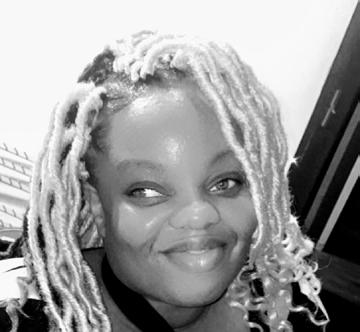
When you talk about the word mad, it also rhymes with, I am so sad.
And lastly, when you talk about the name Thomas, doesn’t it remind you of the word promise? And when you talk about the word chill, it rhymes with Will.
Street Sense
RICARDO MURPHY
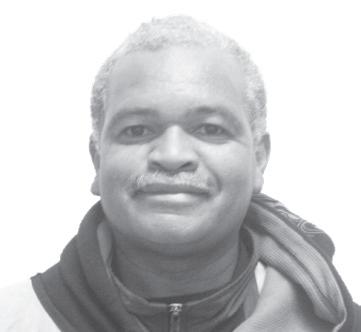
Artist/Vendor
I’m Ricardo, and I’m part of the Street Sense family. I’ve had a period of absence but now I’m back. I’ve been at the hospital, and handling some business concerning my housing. I’m very excited to be back and ready to make money selling the paper. I plan to contribute to the paper through my art.
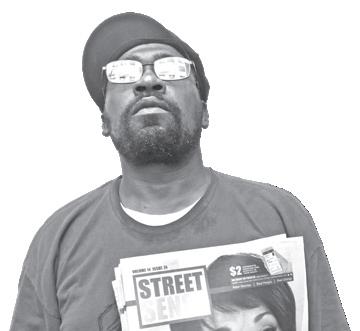
This paper is really a good thing for me and others. It helps build your confidence and work ethic.
I really enjoy selling this paper. It does more for me than I can say. I get to meet people from all over, make money and a lot of opportunities are afforded to you. Best of all, I’m my own boss.
The journey of a dream
MARC GRIER
Artist/Vendor
When I was a little boy, I always wanted to play sports. I wanted to be like the athletes on TV.
My dad told me that it doesn’t work that easy. You have to work out, prepare your mind, your technique. I thought, “Wow, that is a lot of work. So how do I prepare for this? What should I do?”
But I was only 7.
When I turned 8, I was able to join the Boys and Girls Club. I played basketball, football and baseball. And I was
always talented.
Later on, I had to pick two sports in high school. So I decided to choose wrestling and football. I was very good at football, so good I got a college scholarship. I had to work on it constantly. It was not a cakewalk. I spent many hours at the gym. And wrestling, I was a champion, and I played in five national tournaments.
Dream on and never stop working for the little kid that is in you.
STREETSENSEMEDIA.ORG // 11
Bring the world together
ABEL PUTU
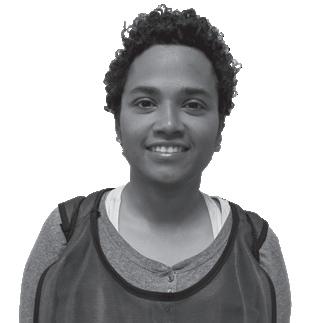 Artist/Vendor
Artist/Vendor
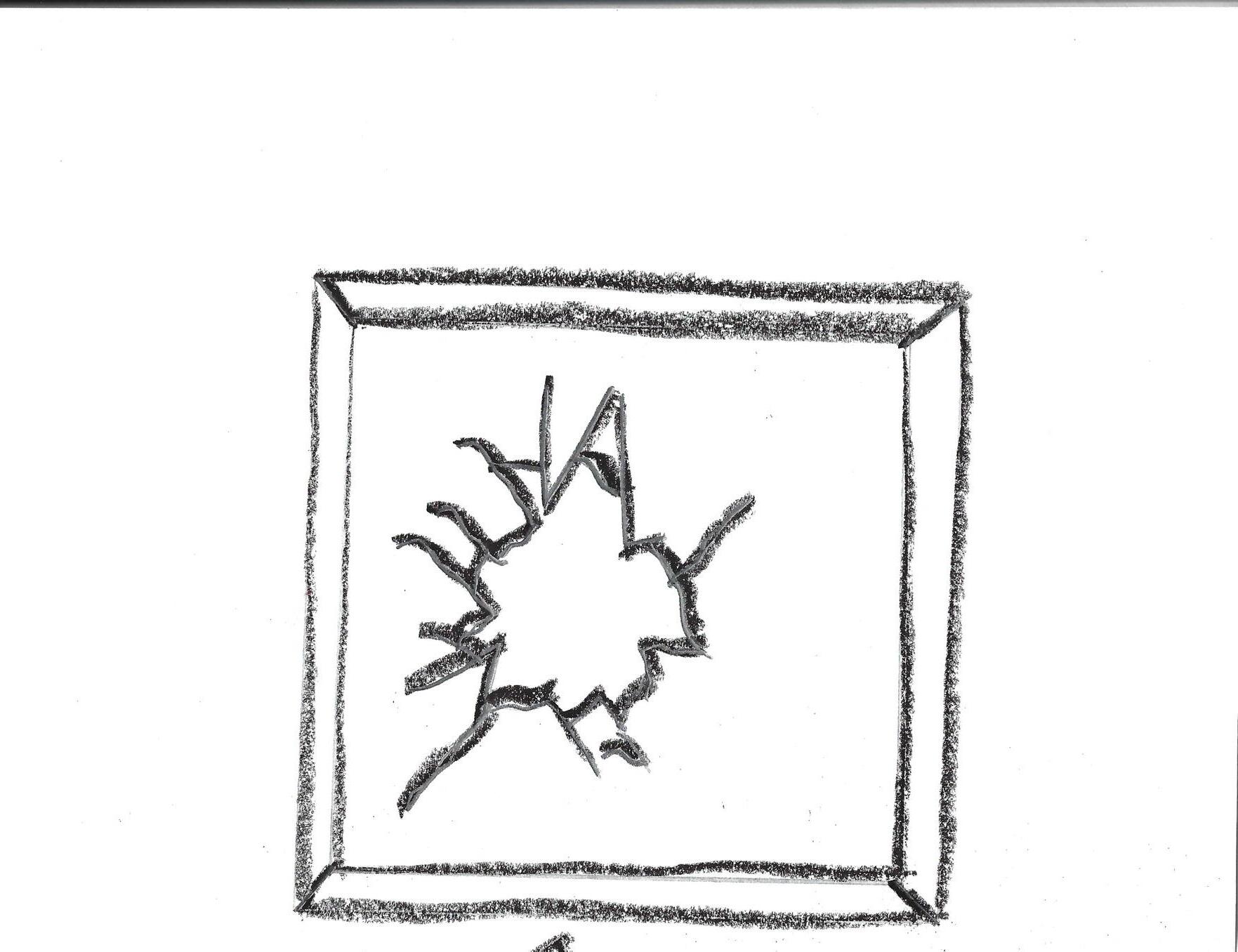
I want unity. I want all of us to be together instead of separating. How can we get the whole world to come together as one? We need to love one another. There’s no more social distancing. We need to go back to normal. We need to shake hands, not do the elbow thing. We need to come together as one and not be divided. We can make the world better for one another.
We need to make the world a better place for the next generation. What can we do to come together? I pray to God that the world gets better.
Things are looking up
VENNIE HILL Artist/Vendor
I've been trying for many years to stop my addiction to alcohol. But I'm still working on it. It's the hardest thing I've ever had to do but I keep trying. I won't give up.
I went into the program, as you know, and I stayed there for five months. I was just waiting for something to happen to me. Something good, something great that I had worked for the whole time I was in there. It never came through, which is my Social Security.
I want to take care of my mom, she’s 87. I'm ready to take care of her but I can't get the funds that I need. I worked for a year and a half and they wouldn't give me unemployment. I tried to sign up for disability but they said my husband makes too much money. I felt that was wrong and that's his income, so what about me?
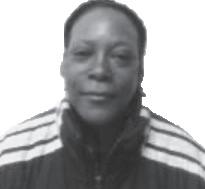
So I'm starting all over. I'm supposed to be going back to the program on June 21. I can't give up on my life. This is my life and I want to live and I know it’s got to get better than this. I feel like I’ve had a streak of bad luck. I might have started back drinking but I got myself back on my feet and I went back to Street Sense. It makes me feel good because those people out there love us and they love helping us.
I've saved up some money and I have to save up plenty more. I'm leaving my husband and I have to get him to sign this paper that says we are no longer together. I called the Social Security people last week and they told me they haven’t even looked at the paperwork yet. It's so hard to keep up with this stuff because my biggest problem is patience. I'm working on that. But anyway, I just put it up to the Lord and keep it in his hands and pray that things go my way one day. And I'm sure they will because they always say he might not come when you want him but he'll always be on time. I truly believe that. Stay safe, stay clean and y'all have a good one
Volunteering
AMINA WASHINGTON Artist/Vendor
I have a lot of volunteer experience. It started in a situation when I was jobless, homeless and thought I had no hope. I came down to a church and was baptized and the church asked if I wanted to serve the homeless people food. I was excited about that. I built a trustworthy relationship with the church members and we became a family.
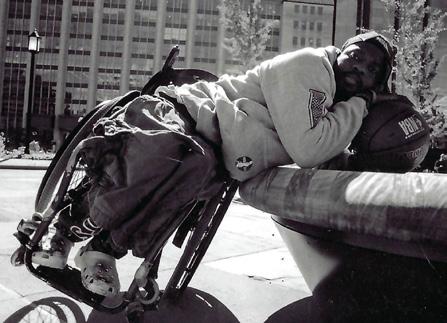
Other volunteer work was helping children at a daycare and helping elders in nursing homes. I also helped with cleaning up institutions, like jail facilities and hospitals. The most fun I had with volunteering was with special events and the recent event was the Cherry Blossom Festival when I pulled a balloon for the parade. I was dressed up like Strawberry Shortcake and it was terrific. Sometimes volunteer work can be tiring, but I do it for the benefit of others, which makes me happy to know I can help.
I suggest people step up and support others with everything that’s needed because not only would it make you happy but it’s an excellent way to pay it forward to the community. It’s also fun, and I love to help others. That’s why I do it.
Beauty
NIKILA SMITH Artist/Vendor
Am I the beholder of your beauty, or are you holding me to your beauty?
I'm a slave to your smell, my force field is weak against your Kryptonite. When you get near, my heart goes crazy. My cheeks are so red from the street fight. I imagine myself with you. My IQ is zero.
I know it's your inside beauty, pulling me to you Are you trying to behold my beauty to you? I know the cause. Can you see the effects your beauty has on me? I pretend to be naive, so you can teach me. Remember, your presence is needed to bring my IQ up. Beauty, please release me!
NIKILA SMITH Artist/Vendor
12 // STREET SENSE MEDIA // MAY 31 - JUNE 6, 2023 ART
The history of my family’s first home
L. MORROW Artist/Vendor
This is a true story about my family. One day, my grandfather and I were fishing on the banks of the Potomac River, not far from our house in Southwest Washington, D.C. I had asked my grandfather why he left his home in Farmville, Va., to go north of Richmond. He said, “Grandson, I will tell you how our family came to America and into slavery, then to freedom.”
He said my great-grandfather and his brother were fishing not too far from our village in Africa when the slavers came and took us. “Grandson, you know the rest,” he said. “Our family came to America, not by choice, but by force. We were sold into slavery in the 1800s to a plantation in Farmville.” My grandfather said my sisters and brothers were bound into slavery on the plantation.
“Grandson, I have told you how we got here,” he said. “I was about your age, and your great-grandfather was just coming out of slavery.” He was a sharecropper on the same plantation he was a slave on. He took me aside and said “‘Son, you’ve got to leave — go north!’ And I never forgot that, grandson! I made a plan with your great uncle Charles to leave. We could not tell anyone we were going, my grandfather said. In those days, Blacks could not travel north and if they caught you, you would be put in jail and then sent to a farm to work off the time.”
My grandfather and my great-uncle Charles left Farmville at midnight to walk a mile north. They searched the Chesapeake and Ohio Canal and walked down the banks of the Potomac River on the Virginia side to get into D.C. Slaves and Blacks couldn’t cross the Potomac River to get into D.C., they all had to take the Virginia side because Virginia was a slave state. They finally reached D.C., at 2 a.m., two days later, in a town now called Georgetown where all Blacks came to D.C. The slaver would bring the slave there to sell, that was the marketplace to buy slaves. The auction market was at Wisconsin and M Street NW. We know it now as Georgetown.
They stayed down in Georgetown, then they headed for D.C. They just couldn’t walk in D.C. at all, they had to walk along the bank of the Potomac River on the D.C. side. As they walked along the river, they could see the Washington Monument, half-built. And the Lincoln Memorial, the Jefferson Memorial and the U.S. Capitol. They were headed for Southwest D.C., where all Blacks would find joy!
As time passed, they found work and a place to stay. Six months later, they put a down payment on a house across the street from the Thomas Jefferson Junior High School. This would be the family house for all.
The brothers did not forget the promises that they made to each other when they left Farmville. Two months went by, and in the middle of the night, the brothers left their home in D.C. and headed south. After walking for six nights, they
Days of movements
CARLTON JOHNSON
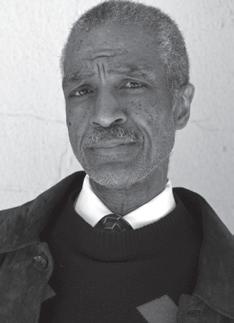
Artist/Vendor
Time molds for no one.
The movements of the days come weekly, over and over, passing every second of what we know.
Not the touch of days — movements of time.
finally arrived at Farmville. The family was glad to see them. The following Sunday they went to church. After church, they had a family meeting. My grandfather also paid all those who would like to leave Farmville to come to the family home. They brought only what they could carry.
My grandfather and his brother took a count of all the family members that were going with them. They formed a circle, held hands and said the family prayer. They headed north in the middle of the night and eight nights later they arrived in Georgetown.
When they arrived some of the family members walked around Georgetown and they couldn’t believe how the Blacks were living and enjoying themselves. You must remember Blacks came into D.C., they couldn’t go no further than Georgetown on Southwest. Blacks were not allowed to come into the city unless to work and go back home.
The family left Georgetown and walked along the banks of the Potomac River. This was the first time they ever saw the Washington Monument, Lincoln Memorial and Jefferson Memorial and they were in awe. They reached the family house at 1:30 p.m. All the family smiled at each other and formed a circle, held hands and they all prayed together.
As they entered the house, they couldn’t believe it. Wooden floors, a kitchen with running water, a bathroom with a tub, a backyard and a front porch.
There were so many family members at dinner time. Some ate in the backyard, kitchen, living room, dining room and out on the front porch, steps, too. The house was full from top to bottom. There was a lot of love in this house. After dinner, most of the family would walk around Southwest, and some went fishing at the Potomac River about two blocks from the house.
The family was amazed at how city life was. Remember, they were coming from a life on a plantation, all this was new to them.
One month passed and some of the family departed to all parts of the United States, some went north to New York, Boston, Philadelphia, Ohio, Chicago, California. You name it, I got some family there.
Before family members departed, they all formed a circle and said the family prayer. My great uncle Charles said to all the family members a vow — at the first family reunion, we all will come to the family house.
I asked my grandfather what shocked him when he came to D.C. He sat back and said “Grandson, I thought I had left these people behind me, but we didn’t,” he said. I asked, “What people?”
He witnessed the KKK march down Pennsylvania Ave in 1919, to fill up the mall, to the Lincoln Memorial and to the
U.S. Capitol. In Farmville, you only see them at night, this was the first time I had ever seen them in the daytime, in all white. He said, “Grandson, it really shocked me and some of our family. We will never forget it.”
Grandfather said, “I was talking to my brother Charles about the vow that we made to each other when we first left Farmville, to go north.
“It was in 1939 that we were planning to act on the vow that we made to have our first family reunion. My brother, your great uncle Charles and I decided on Easter Sunday because Marian Anderson was going to sing at the Lincoln Memorial.” I asked my grandfather, “How did you know where the family members went to?” My grandfather said, “Son, you must remember, this is the family house, where they all left from. The family member would drop a letter to tell us where they were and pass the address to the rest of the family members. My brother and I started mailing out letters to all family members all over the country.”
Our first family reunion was in 1939, a week before Easter Sunday. The family members came from all parts of the United States. The family members were again at the family house. My grandfather said there were a lot of new family members at the house. My grandmother had all the new family members in the backyard to write their names in the family Bible. It was many family members at the first family dinner together, my grandfather said that they took up half of the block eating dinner, and it was a joy to see all the family together again.
That Easter Sunday in 1939, the family had a church service at the family house. My great-uncle was a deacon in the church. In fact, our family helped start the church at 14th Park Road NW. The family got together for church service.
The brother told the family that they had a surprise for all of them. As a family, we are going to walk to Lincoln Memorial to see Marian Anderson sing. This was a memorable first family reunion. At that moment there were over 75,000 people in the mall to hear her. This was the first time that Blacks were permitted to come to the mall.
At the concert the family walked to all the monuments on the mall, they could not go into D.C. at all at the time, as it was still segregated.
My family all walked back to the family house. Some went fishing. The family members stayed for two weeks. We had a family reunion every Easter Sunday, where they will be at the family house or wherever in the United States, we all will come as one big family reunion.
Now you know how my family came to America. How did your family get here?
It’s good to know your family history.
Home
PHILLIP BLACK Artist/Vendor
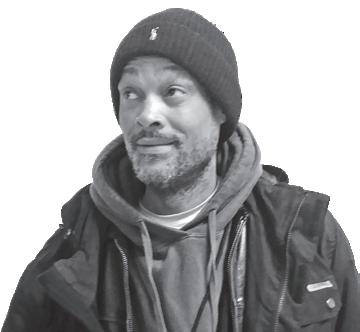
It’s not our fault, what you and them bought. But it’s always about thought.
It’s always what we go through. Rather, it’s us, or you.
Home is a home, no matter where we are at.
I know, I am the Cat in the Hat.
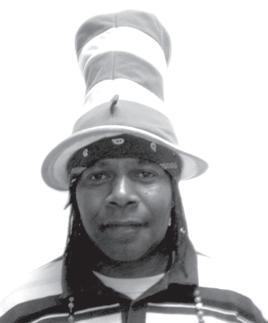
STREETSENSEMEDIA.ORG // 13
FUN & GAMES FUN GAMES
1. It may be convertible
5. Hedge component
10. Walk with effort 14. Last thing said before dinner?
15. Monopoly purchase 16. Theta follower
17. Burdensome boss 19. Stride at a track 20. Bring into servitude
31. Your of yore
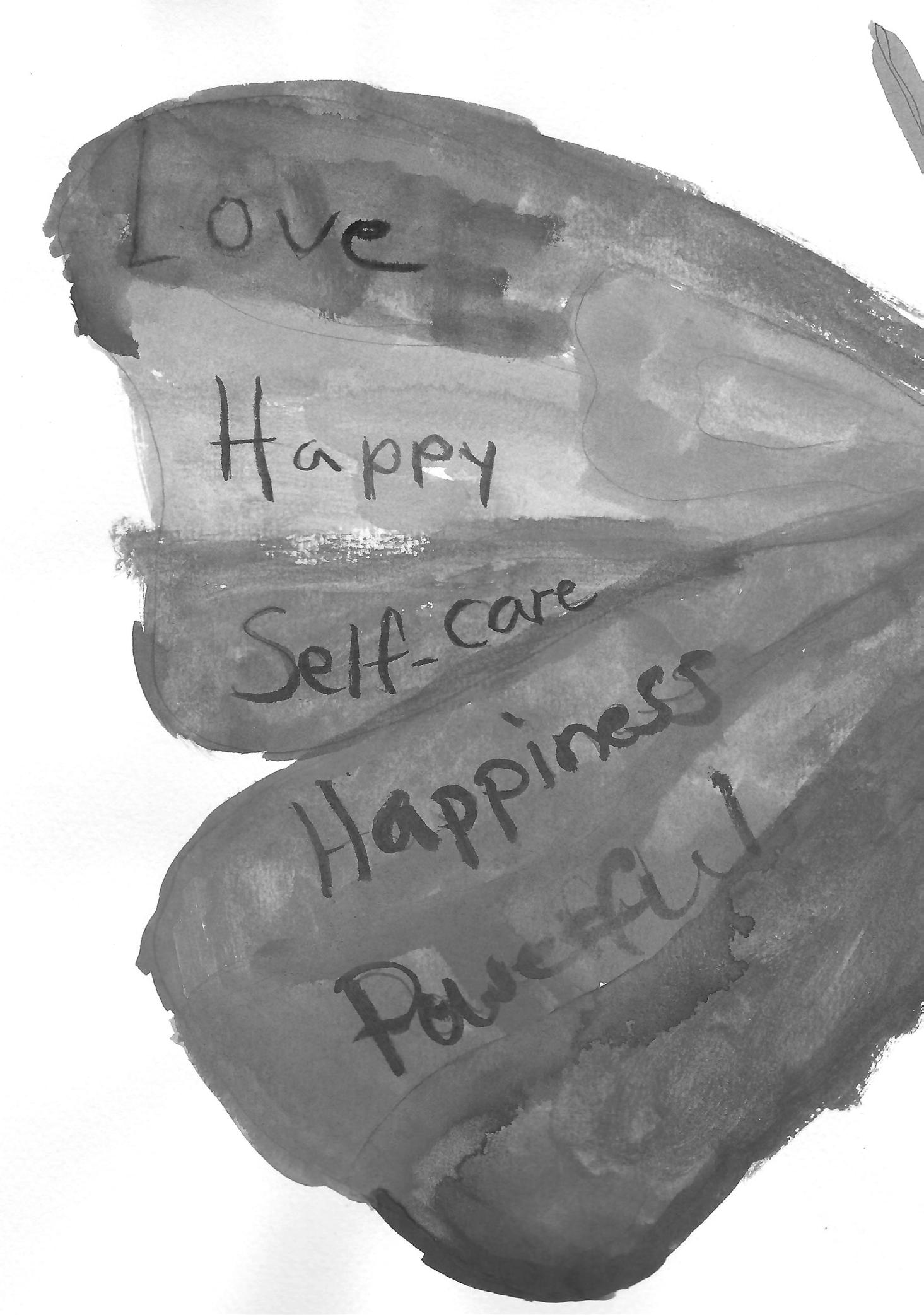
32. Use a whetstone
33. Presidential run
34. Peach or plum
35. That girl
37. Dentist’s suggestion
40. Comprehended
41. Pinnacles
44. Damsel’s deliverer
46. Name in brewing
47. Blender setting
48. Fiery gem
49. Gullible one 50. She was born free 51. Skilled
52. Fellow 53. Horne who sang “Stormy Weather” 54. Work units 57. What a game may break 58. Extraction’s creation
Illustration of the Week

DOMINQUE ANTHONY Artist/Vendor 14 // STREET SENSE MEDIA // MAY 31 - JUNE 6, 2023
LAST EDITION’S PUZZLE SOLUTION Find the solution at https://onlinecrosswords net/6934 OnlineCrosswords.net This is the Daily Crossword Puzzle #2 for May 30, 2023 Across 1 It may be convertible 5 Hedge component 10 Walk with effort 14. Last thing said before dinner? 15 Monopoly purchase 16 Theta follower 17 Burdensome boss 19 Stride at a track 20 Bring into servitude 21. Show clearly 23 Prior to, in poems 24. Site for tying knots 26 "G'day, !" 28. Postgrad deg. 29 Indisposed 33 Garb 34 Top boss 36 Eden exile 37 Comparatively more comical 38. Tenth anniversary gift 39 Chief plotter 41 Court defense 42 Montreal's railway 43 Trig function 44 Roll call response 45 Rockies resort 47 Sword conqueror 48 Black Sea locale 51 Heart part 55 Paper starter 56 Oppressive boss 59 Church recess 60 Postal device 61 Put up on the wall 62. Pb 63 L ittle house on the prairie? 64 Hotel amenities Down 1 More than fill 2 Mideast sultanate 3 up (come clean) 22 Reason for a decoration 24 Leave in the lurch 41 Pinnacles 44 Damsel's deliverer 46 Name in brewing ng n free ang " may reation
Across
23.
24.
tying knots 26. “G’day, ___!” 28. Postgrad deg. 29. Indisposed 33. Garb 34. Top boss 36. Eden exile 37. Comparatively more comical 38. Tenth anniversary gift 39. Chief plotter 41. Court defense 42. Montreal’s railway 43. Trig. function 44. Roll call response 45. Rockies resort 47. Sword conqueror 48. Black Sea locale 51. Heart part 55. Paper starter 56. Oppressive boss 59. Church recess 60. Postal device 61. Put up on the wall 62. Pb 63. Little house on the prairie? 64. Hotel amenities
More than fill
Mideast sultanate 3. ___ up (come clean)
Low socks
It can be close
Water carrier
Tire trapper
Put to work 9. Artist’s cap, perhaps
Blast furnace product
Shark’s offer
Of the ear
and a movie,
in the
a certain
of
21. Show clearly
Prior to, in poems
Site for
Down 1.
2.
4.
5.
6.
7.
8.
10.
11.
12.
13. Dinner
perhaps 18. Stable mom 22. Reason for a decoration 24. Leave
lurch 25. Word on
door 26. Hollywood release 27. Actors representative 28. Dennis
comics, for one 30. Paul Newman, for one
SOLUTION: Waste Not ____ Issue L 1 I 2 L 3 L 4 E 5 S 6 R 7 A 8 S 9 E 10 S 11 T 12 D 13 A 14 N T O N H 15 E L P A 16 U R I S 17 L I N G O 18 V E R T 19 U R E S S 20 O L E I L 21 R 22 E O E 23 M U O 24 V E R N I G 25 H 26 T E R F 27 B S S 28 E S E 29 L I A S T 30 O 31 I L E R 32 E A R M A 33 R E S O 34 V 35 E R C O M M 36 I 37 T 38 T E D B 39 R O S I 40 O T A S A 41 B U T S 42 M 43 E R C K P 44 S 45 S 46 S 47 I C O 48 V 49 E R T H E M 50 O O N A 51 T H L 52 I T Y 53 S I D R O L 54 E F T 55 O V E R 56 S 57 A 58 L I T O T 59 R O D I 60 O N E I 61 N U I T S 62 S R S D 63 R A W M 64 E M E S
All services listed are referral-free
Academy of Hope Public Charter School 202-269-6623 // 2315 18th Place NE aohdc.org
Bread for the City - 1525 7th St., NW // 202-265-2400 - 1640 Good Hope Rd., SE // 202-561-8587 breadforthecity.org
Calvary Women’s Services // 202-678-2341 1217 Good Hope Rd., SE calvaryservices.org
Catholic Charities // 202-772-4300 catholiccharitiesdc.org/gethelp
Central Union Mission // 202-745-7118 65 Massachusetts Ave., NW missiondc.org
Charlie’s Place // 202-232-3066 1830 Connecticut Ave., NW charliesplacedc.org
Christ House // 202-328-1100 1717 Columbia Rd., NW christhouse.org
Church of the Pilgrims // 202-387-6612 2201 P St., NW food (1-1:30 on Sundays only) churchofthepilgrims.org/outreach
Community Family Life Services 202-347-0511 // 305 E St., NW cflsdc.org
Community of Hope // 202-232-7356 communityofhopedc.org
Covenant House Washington 202-610-9600 // 2001 Mississippi Ave., SE covenanthousedc.org
D.C. Coalition for the Homeless 202-347-8870 // 1234 Massachusetts Ave., NW dccfh.org
Downtown Day Services Center 202-383-8810 // 1313 New York Ave NW https://www.downtowndc.org/program/the-center/
Father McKenna Center // 202-842-1112 19 Eye St., NW fathermckennacenter.org
Food and Friends // 202-269-2277 (home delivery for those suffering from HIV, cancer, etc) 219 Riggs Rd., NE foodandfriends.org
Foundry Methodist Church // 202-332-4010 1500 16th St., NW ID (Friday 9am–12pm only) foundryumc.org/ministry-opportunities
Friendship Place // 202-364-1419 4713 Wisconsin Ave., NW friendshipplace.org
Georgetown Ministry Center // 202-338-8301 1041 Wisconsin Ave., NW georgetownministrycenter.org
Jobs Have Priority // 202-544-9128 425 2nd St., NW jobshavepriority.org
Loaves & Fishes // 202-232-0900 1525 Newton St., NW loavesandfishesdc.org
Martha’s Table // 202-328-6608 marthastable.org 2375 Elvans Road SE
2204 Martin Luther King Ave. SE
Miriam’s Kitchen // 202-452-8926 2401 Virginia Ave., NW miriamskitchen.org
My Sister’s Place // 202-529-5991 (24-hr hotline) mysistersplacedc.org
N Street Village // 202-939-2060 1333 N St., NW nstreetvillage.org
New York Avenue Shelter // 202-832-2359 1355-57 New York Ave., NE
Patricia Handy Place for Women 202-733-5378 // 810 5th St., NW
Samaritan Inns // 202-667-8831 2523 14th St., NW samaritaninns.org
Samaritan Ministry 202-722-2280 // 1516 Hamilton St., NW 202-889-7702 // 1345 U St., SE samaritanministry.org
Sasha Bruce Youthwork // 202-675-9340 741 8th St., SE sashabruce.org
So Others Might Eat (SOME) // 202-797-8806 71 O St., NW some.org
St. Luke’s Mission Center // 202-333-4949 3655 Calvert St., NW stlukesmissioncenter.org
Thrive DC // 202-737-9311 1525 Newton St., NW thrivedc.org
Unity Health Care 3020 14th St., NW // unityhealthcare.org - Healthcare for the Homeless Health Center: 202-508-0500 - Community Health Centers: 202-469-4699
1500 Galen Street SE, 1500 Galen Street SE, 1251-B Saratoga Ave NE, 1660 Columbia Road NW, 4414 Benning Road NE, 3924 Minnesota Avenue NE, 765 Kenilworth Terrace NE, 555 L Street SE, 3240 Stanton Road SE, 3020 14th Street NW, 2700 Martin Luther King Jr. Avenue SE, 1717 Columbia Road NW, 1313 New York Avenue, NW BSMT Suite, 425 2nd Street NW, 4713 Wisconsin Avenue NW, 2100 New York Avenue NE, 2100 New York Avenue NE, 1333 N Street NW, 1355 New York Avenue NE, 828 Evarts Place, NE, 810 5th Street NW
Washington Legal Clinic for the Homeless 1200 U St., NW // 202-328-5500 legalclinic.org
The Welcome Table // 202-347-2635 1317 G St., NW. epiphanydc.org/thewelcometable
Team Member
South Block // 1418 14th St. NW
Full-time // Part-time
Operate the cash register, provide customer service, prepare food and clean the store.
REQUIRED: Physically able to lift up to 25 pounds and stand for long periods of time.
APPLY: tinyurl.com/block-team-member
Kitchen Team Member
Sweetgreen // 221 Pennsylvania Ave. SE
Full-time // Part-time
Follow food safety and quality standards. Maintain clean stations throughout the shift and prepare all cold and hot food items
REQUIRED: Physically able to lift up to 25 pounds and stand for long periods of time.
APPLY: tinyurl.com/sweetgreen-pennave
Room Attendant
Hay Adams Hotel // 800 16th St. NW
Full-time
Clean and restock guest rooms and keep all work areas organized.
REQUIRED: Physically able to lift up to 30 pounds and stand for long periods of time.
APPLY: tinyurl.com/hayadams-attendant
Whitman-Walker Health 1701 14th St., NW // 202-745-7000 2301 MLK Jr. Ave., SE // 202-797-3567 whitman-walker.org
Hiring? Send your job postings to editor@StreetSenseMedia.org For further information and listings, visit our online service guide at StreetSenseMedia.org/service-guide
STREETSENSEMEDIA.ORG // 15
JOB BOARD Housing/Shelter Vivienda/alojamiento Case Management Coordinación de Servicios SHELTER HOTLINE Línea directa de alojamiento (202) 399-7093 YOUTH HOTLINE Línea de juventud (202) 547-7777 DOMESTIC VIOLENCE HOTLINE Línea directa de violencia doméstica 1-800-799-7233 BEHAVIORAL HEALTH HOTLINE Línea de salud del comportamiento 1-888-793-4357 Education Educación Food Comida Health Care Seguro Employment Assistance Assitencia con Empleo Clothing Ropa Transportation Transportación Legal Assistance Assistencia Legal Showers Duchas Laundry Lavandería
COMMUNITY SERVICES
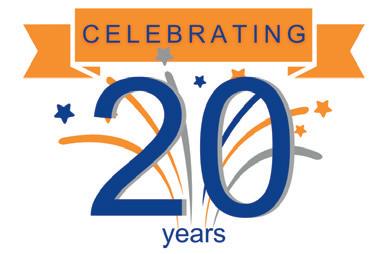
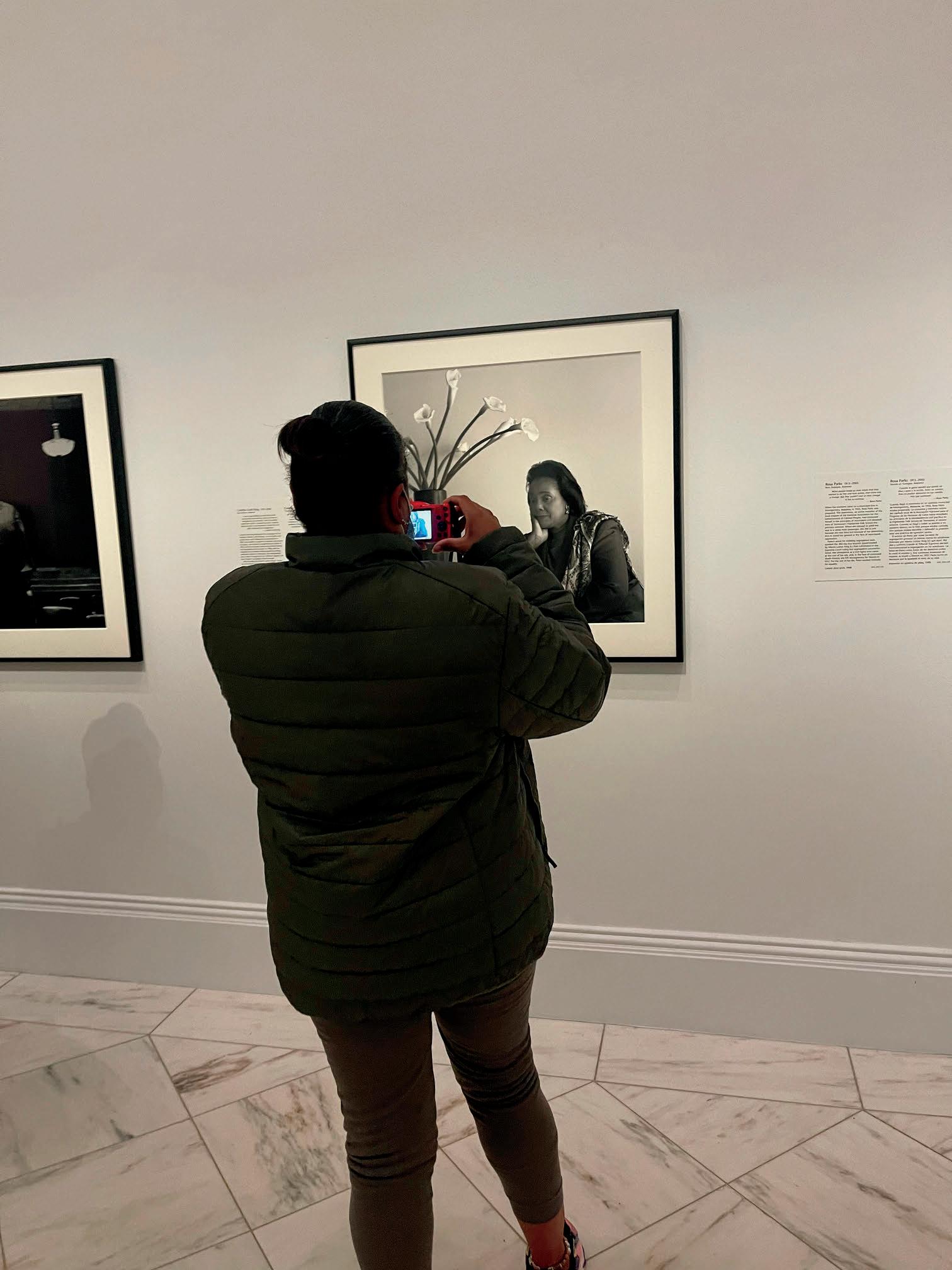
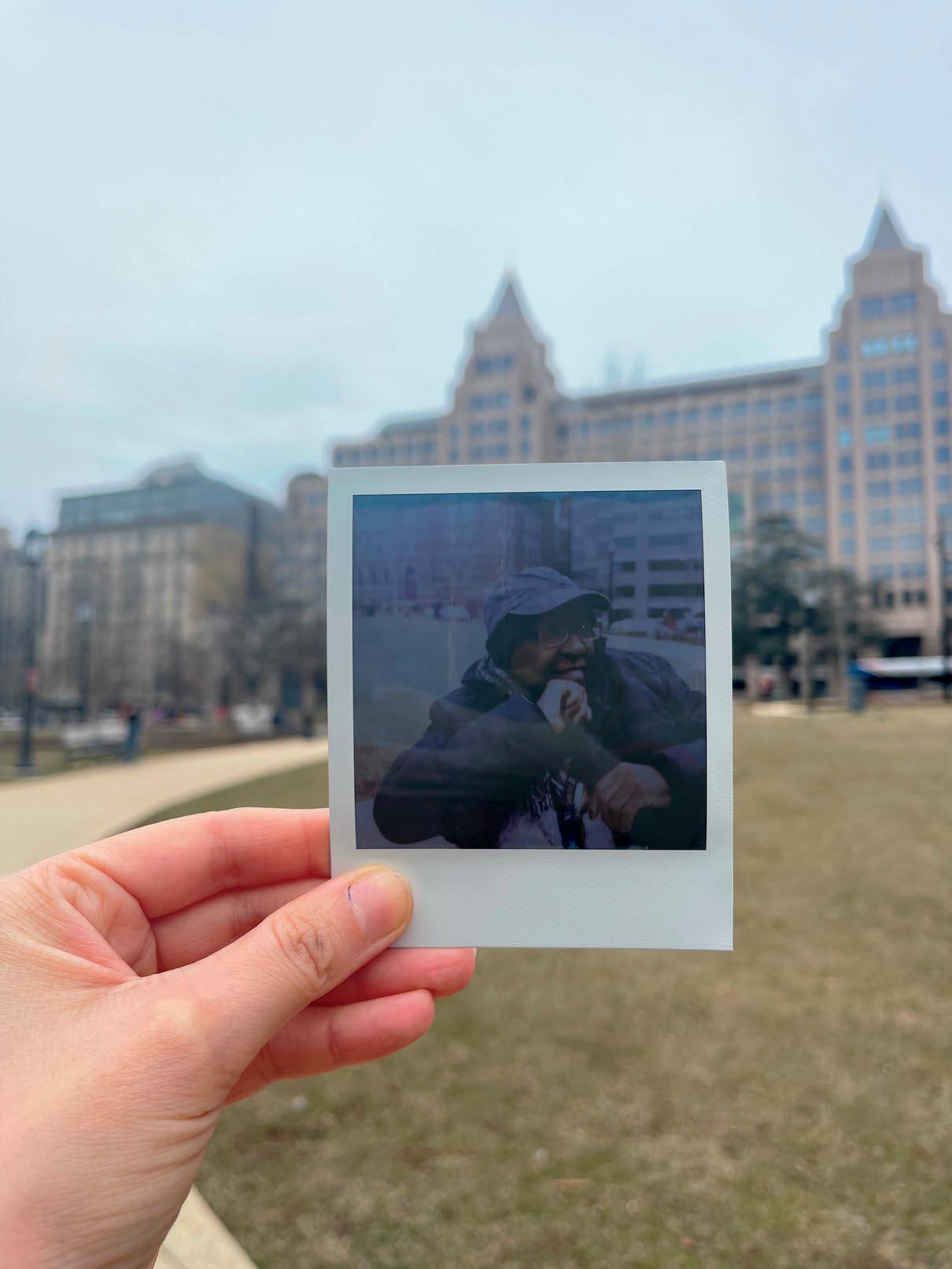
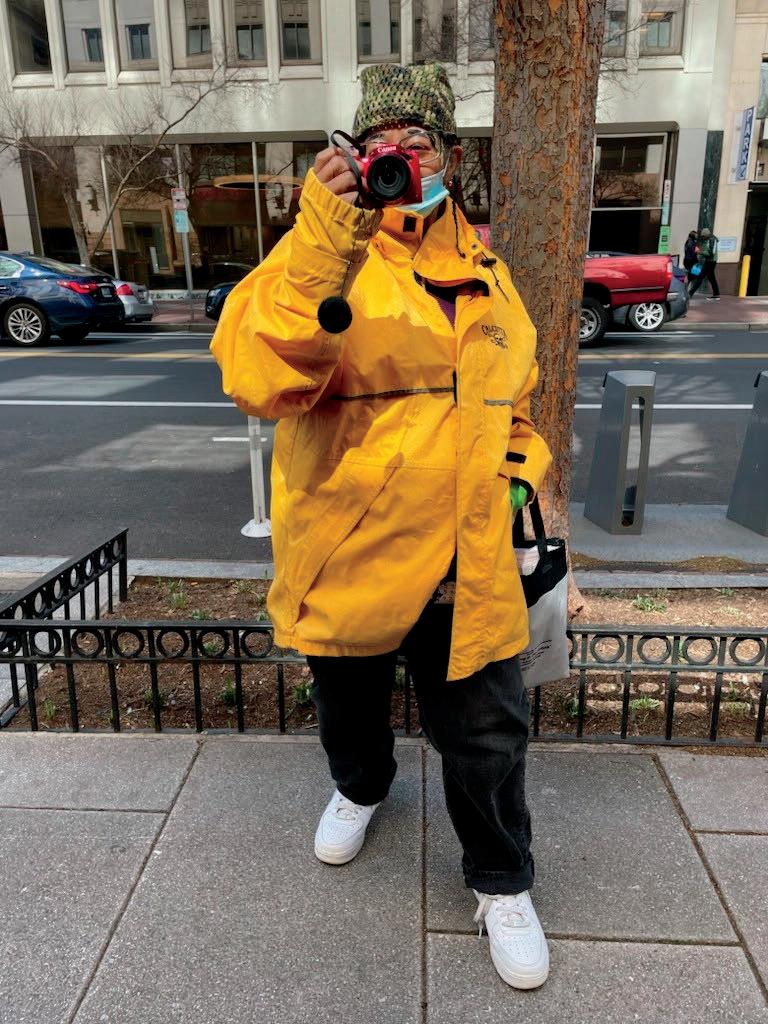
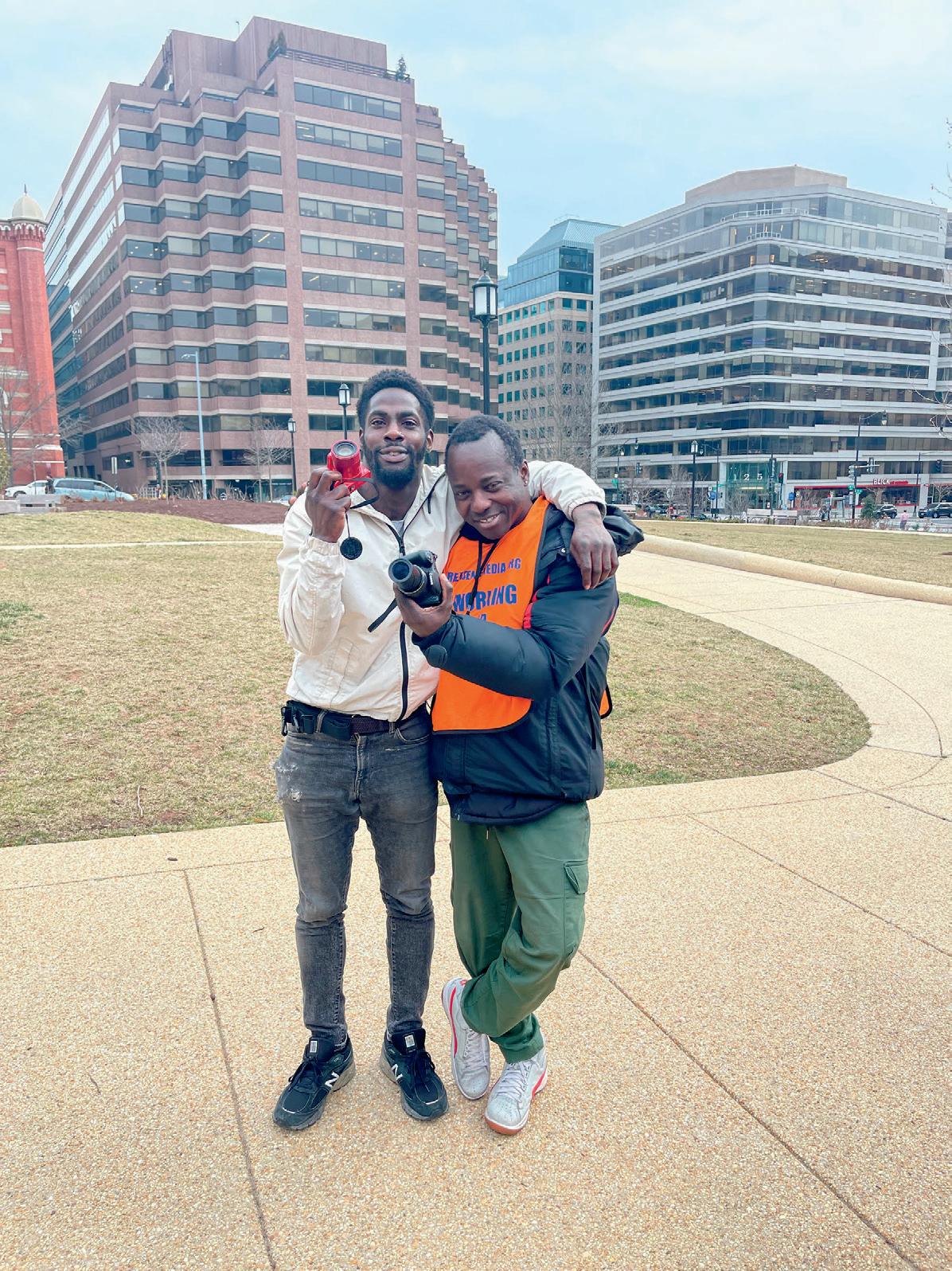
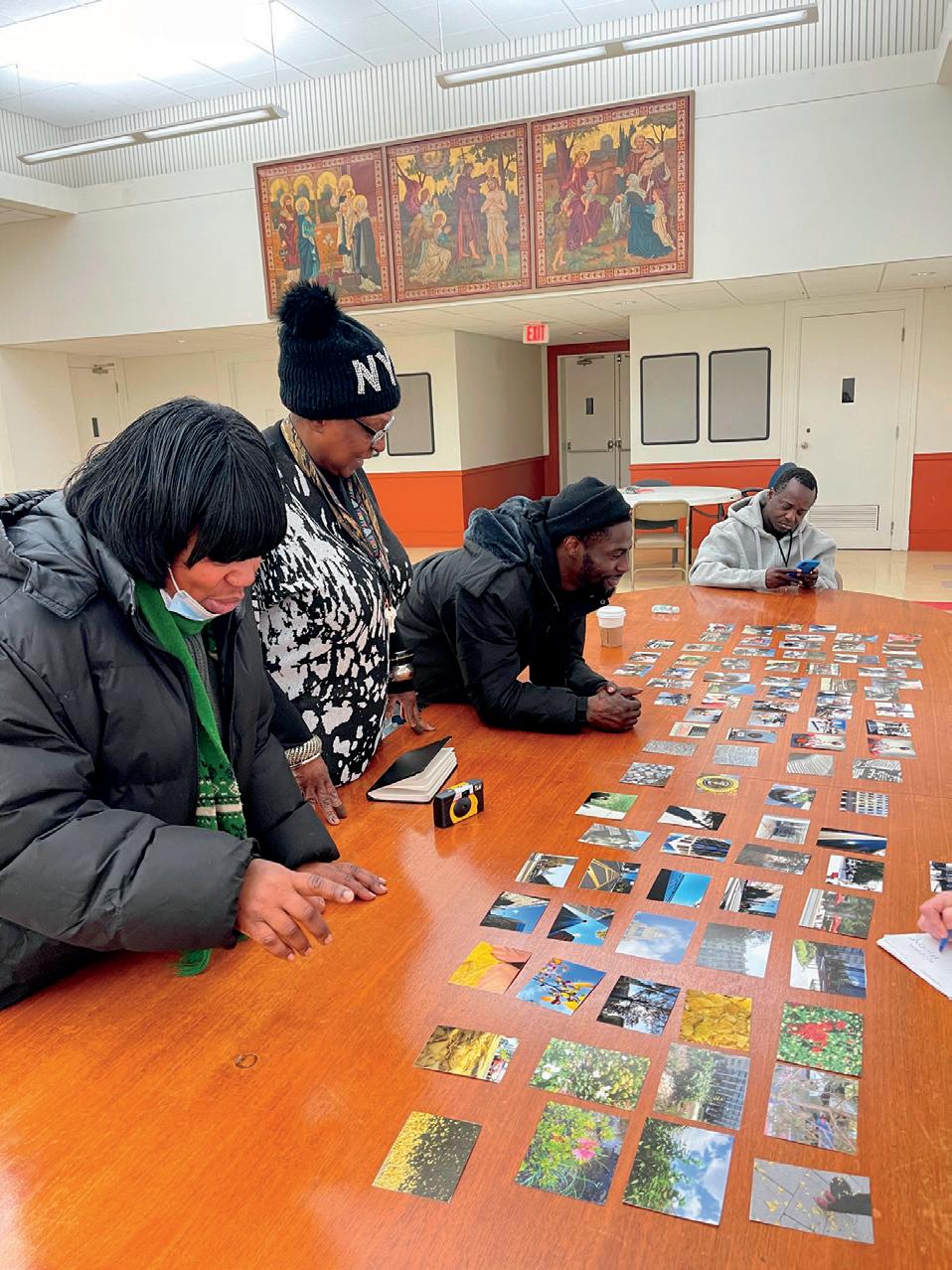





Books will be available for purchase fo hursday, June 22, 2023 at 6:30PM - 8 at Navy Yard 79 Potomac Ave Washington, DC 20003 RSVP at https://bit ly/SSMBookLa Join us in celebrating the publication of SSM's first photography book featuring the work of ten artist/vendors! Meet the photographers! Drink specials! THROU OUR EY
by Street Sense Media presents MAY 31 - JUNE 6, 2023 VOLUME 20 ISSUE 27 From your vendor, Thank you for reading Street Sense! 5,700 VENDORS 3.2 million READERS 90+ STREET PAPERS 35 COUNTRIES 25 LANGUAGES NO CASH? NO PROBLEM. WE HAVE AN APP! SEARCH “STREET SENSE” IN THE APP STORE
Photography

















 TOMISLAV MARTIC Liceulice
TOMISLAV MARTIC Liceulice








 Artist/Vendor
Artist/Vendor


















